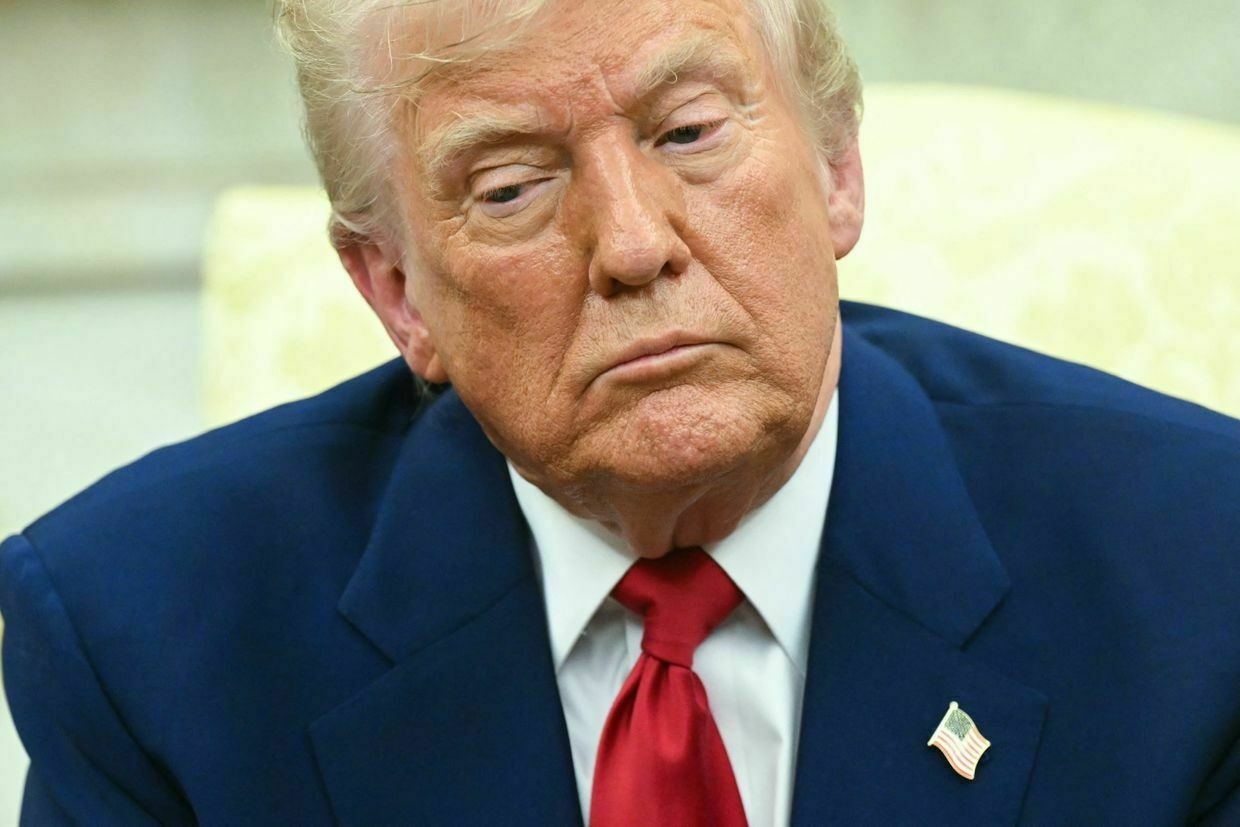-
The Counteroffensive: Can Ukraine's military survive without Elon Musk's Starlink systems?

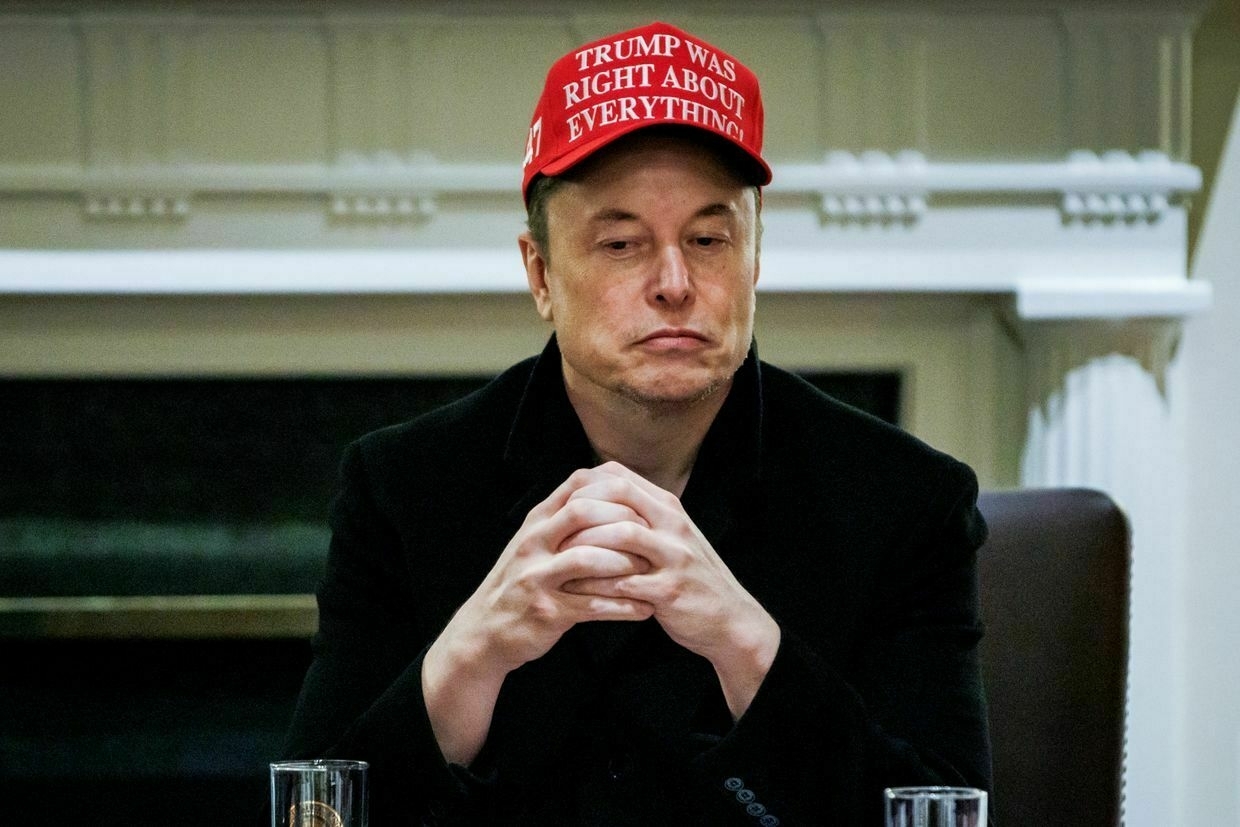
After a busy day at work as a software engineer, Oleg Kutkov returns to his apartment in Kyiv. He steps out onto the balcony — but not to smoke or water the flowers. Oleg’s balcony is a workshop. There, he repairs Starlink terminals damaged at the front and sends them back to soldiers.
"At first, I used to work with Starlink as a hobby. But when I fix them now, I realize it's not just a hobby — it’s the main means of communication at the front," Oleg told the Counteroffensive.
Hundreds of thousands of people in Ukraine — including The Counteroffensive’s Kyiv office — depend on Starlink satellites, which have replaced internet networks damaged during the war. Civilians in hospitals, schools, and frontline areas all rely on it — as does the military along the entire front.
But U.S. President Donald Trump and Elon Musk see Starlink as leverage over the Ukrainian government. Starlink is part of Musk’s company, SpaceX, and although Ukraine and its partners pay for the system’s operation, Musk can theoretically shut it off at any time.
The centrality of Starlink to Ukraine’s military success underscores just how significant a geopolitical figure Musk has become — and how the world’s richest man now wields influence far beyond his net worth. The trajectory of the war, in many ways, lies in the hands of one person.
Ukrainian soldiers understand there are no full-fledged alternatives to Starlink, but they are prepared to fight without it — because they have no choice. That might mean relying more on traditional methods of communication, including radios and cellular networks. Satellite systems from other companies may help, but they’re less efficient and can’t fully cover the front.
Since childhood, Oleg, now 36, has enjoyed taking apart and reassembling electronics. So when he learned about Starlink in 2021, it immediately piqued his interest.
He ordered his first terminal from the United States in late 2021 — before Starlink service was even available in Ukraine. His goal was to disassemble the terminal and see how it worked. He believes his was likely the first Starlink terminal in the country.
A few months later, Russia launched its full-scale invasion of Ukraine. In late February 2022, Ukraine asked Musk to activate Starlink access. Russia was targeting communication towers and knocking out access to traditional systems. Musk — who can both give and take away — responded within hours. He announced that Starlink service was active in Ukraine and that the first terminals were on their way.
“I know Starlink is not reliable — SpaceX has already shut it down several times. But currently, there are no full-fledged alternatives.”
Oleg saw Musk’s tweet and decided to try activating his terminal. With help from his SpaceX contacts, it worked. He believes it was one of the first active Starlink terminals in Ukraine.
“It allowed me to at least somehow stay in touch and get some news,” Oleg said of his experience in Kyiv at the beginning of the invasion. “Where there was no connection due to Russian attacks, it appeared thanks to Starlink.”
While Musk supported Ukraine early in the war, he later started to undermine the Ukrainian military's operations.
In September 2023, biographer Walter Isaacson claimed Musk had secretly disabled Starlink service near occupied Crimea the previous year to disrupt a Ukrainian attack on the Russian fleet. The story was later confirmed by Kyrylo Budanov, head of Ukraine’s military intelligence.
In February 2023, SpaceX restricted Starlink’s use in Ukraine — specifically limiting its role in drone operations. Musk said the decision was made “to prevent World War III.” The restrictions were eventually lifted.
More recently, threats to shut down Starlink surfaced again when Trump returned to the presidency. According to Reuters, Trump administration officials warned Ukraine they would cut off Starlink access unless Ukraine agreed to a mining deal. The deal remains unsigned.
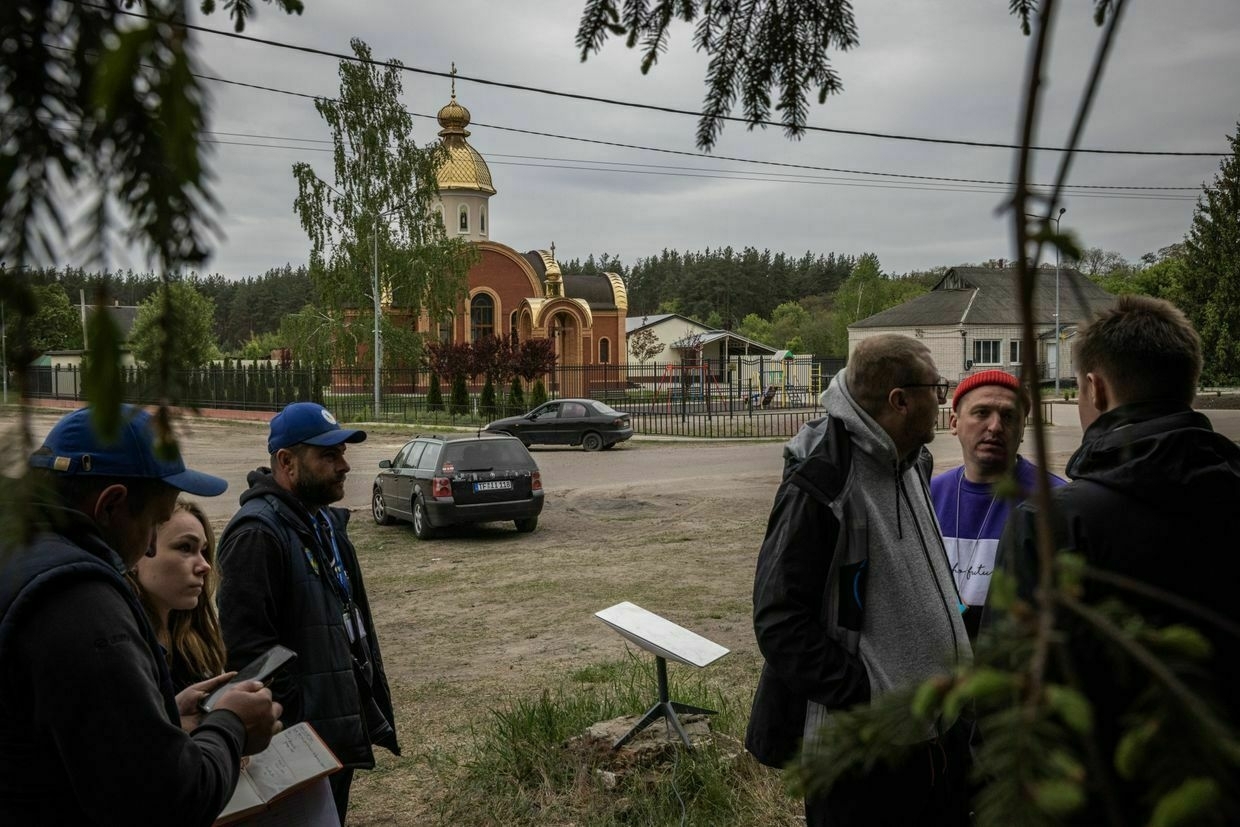
A Starlink is seen as evacuees wait to be transported to Kharkiv, Ukraine, after being evacuated during a Russian advance into Vovchansk, Kharkiv Oblast, Ukraine, on May 13, 2024. (Ed Ram / For The Washington Post via Getty Images) Musk also clashed with Polish Foreign Minister Radosław Sikorski over Starlink. Although Musk later tweeted that he would never cut access, there is lingering skepticism about whether his word can be trusted.
Ukraine remains vulnerable to the possibility that Musk could pull the plug on Starlink at any time. As a result, the government is seeking alternatives.
“I know Starlink is not reliable — SpaceX has already shut it down several times. But currently, there are no full-fledged alternatives. All other options are worse,” Oleg said.
With Starlink, Ukraine’s military can coordinate operations, transmit front-line data, and monitor the battlefield — even when there’s no mobile network coverage. It also enables drone reconnaissance and precision strikes.
“Communication (via Starlink) is the basis of command and control,” said Yaroslav Honchar, head of the nonprofit Aerorozvidka, which promotes robotic military technology. “If there is communication, then there is control, and then can we talk about offense, defense, and everything else.”
Although Starlink isn’t officially available to the Russian army, reports suggest some Russian units have used it anyway.
Still, the system has its flaws. Starlink terminals aren’t designed for long-term use under battlefield conditions. They often break under extreme weather or combat stress. The most common issue Oleg sees is shrapnel damage. But he also fixes terminals that have been flooded in trenches, chewed by rodents, or tossed from moving vehicles.
“There was a case when I drained 5 liters of water from two new terminals. I dried them out, repaired them, and they started working,” Oleg said.
Ukraine’s growing interest in alternatives is driven by a desire to reduce its dependence on Musk. According to the Financial Times, the European Union is currently in talks with four companies to possibly replace Starlink for Ukraine’s armed forces: SES (Luxembourg), Hisdesat (Spain), Viasat (United Kingdom), and Eutelsat/OneWeb (France).
The first three rely on older satellite technology, with satellites orbiting around 30,000 kilometers above Earth — compared to Starlink’s 500 to 800 kilometers. This affects latency and data speed.
Eutelsat/OneWeb’s satellites are closer, orbiting around 1,200 kilometers, and are more comparable to Starlink in coverage. But the size of their network is limited — just 500 to 600 satellites versus Starlink’s more than 6,000.
Other alternatives are more rudimentary. During the Battle of Kursk, Ukrainian forces used radio and wired communications, since Starlink doesn’t work in Russia.
“We can successfully defend the country without Starlink. We did it at the very beginning of the full-scale invasion, and we can do it now," said Volodymyr Stepanets of the Narodnyi Starlink initiative, which repairs and supplies terminals. "It is more difficult, more expensive... but it is possible."
Stepanets also argues that cutting off Ukraine would hurt Musk, too. He said more than 150,000 Starlink terminals are currently in Ukraine, generating roughly $15 million per month in subscription fees.
“As a country, we are Musk's largest customer on this continent. Probably, the number of Starlink terminals in Ukraine is higher than in the whole of Europe,” he said.
The Counteroffensive contacted the Ministry of Digital Transformation and Starlink’s Ukraine office to confirm the number of terminals in use. As of publication, neither had responded.
Oleg has worked on Starlink Gen 2 terminals, which he says have a vulnerability in field use. One connector used to link the equipment is prone to moisture intrusion and often fails. To fix the issue, Oleg substituted a connector from a different company that was more water-resistant. After testing it, he recorded a video tutorial to help others do the same.
Like many Ukrainians, he adapted. He improvised. He taught others how to make do—and how to make things better. Under pressure, Ukraine’s creativity shines. And it will continue to shine, even if Elon Musk turns off the lights.
Editor’s Note: This article was published by the twice-weekly newsletter “The Counteroffensive with Tim Mak” on April 9, 2025, and has been re-published by the Kyiv Independent with permission. To subscribe to The Counteroffensive, click here. The opinions expressed in the op-ed section are those of the authors and do not necessarily reflect the views of the Kyiv Independent.
Trump’s tariffs risk disaster while bipartisan Russia strategy offers hopeThere is unfortunately absolutely nothing good to say about the announcements U.S. President Donald Trump made during his recent “Liberation Day” event in the White House Rose Garden. Try as one might to “sane-wash” Trump’s economic policies, there is simply no coherent rationale for his supposedly…The Kyiv IndependentSimon Johnson
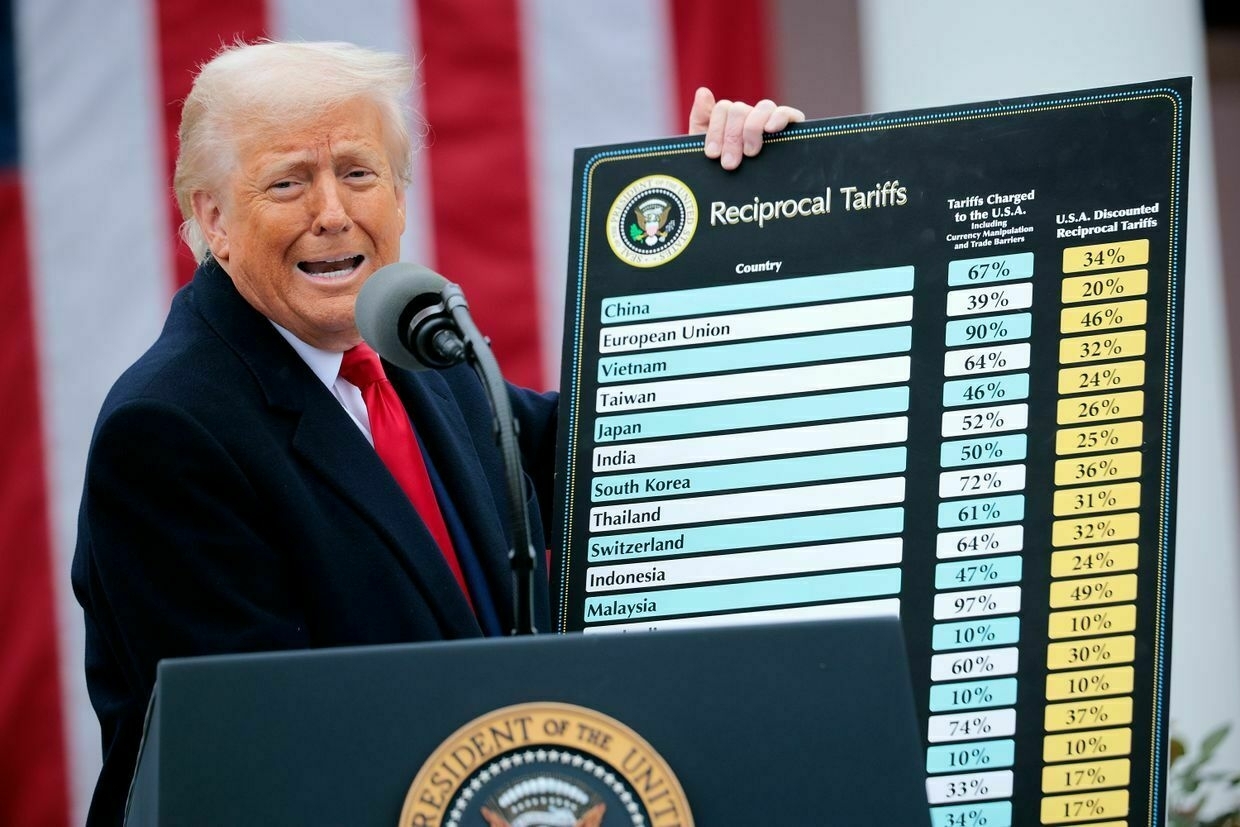
-
In first such case, Russia's ex-proxy in Crimea convicted of breaching UK sanctions
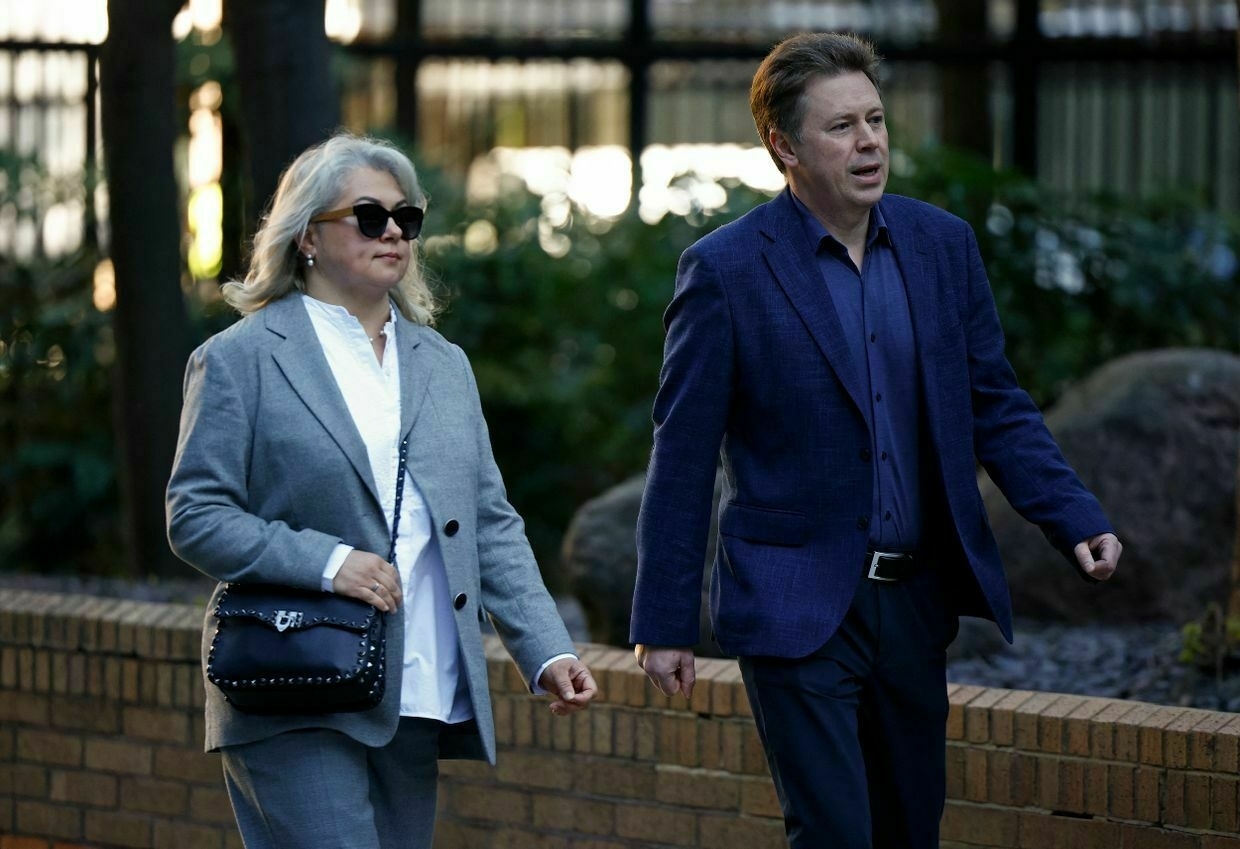
Dmitry Ovsiannikov, formerly a Russian-installed head of occupied Sevastopol in Crimea, was found guilty on April 9 of violating British sanctions in the first such ruling.
A London court found the 48-year-old guilty of circumventing sanctions between February 2023 and January 2024 on six out of seven counts.
Ovsiannikov has been accused of opening a Halifax Bank of Scotland (HBOS) account on or before February 2023 and having his wife, Ekaterina Ovsiannikova, transfer tens of thousands of pounds to it.
His brother, Alexei Owsjanikow, was convicted of two counts of sanctions breach.
Ovsiannikov was appointed as chief of the occupation administration in Sevastopol in 2017, the same year he was placed on the U.K. and EU sanctions lists. He held the post until 2019, when he resigned amid criticism of his work.
The Russian official, who also previously served as a deputy trade minister before being dismissed and expelled from the ruling United Russia party in 2020, moved to London in 2023 and acquired a British passport despite existing sanctions.
This marks the first prosecution case based on the U.K.’s Russian Regulations of 2019, the Guardian reported.
The U.K. imposed targeted sanctions on Russia in coordination with other partners in 2014 in response to Moscow’s illegal annexation of Crimea, further tightening the sanctions regime after the outbreak of the full-scale invasion of Ukraine in 2022.
Over 1,700 individuals and 380 entities are sanctioned under the U.K.’s Russia regime as of 2025.
‘Supporting Ukraine is America first’ — Trump’s spiritual advisor, Pastor Mark BurnsWhen U.S. President Donald Trump paused military aid to Ukraine last month, the man described as his “spiritual advisor,” Pastor Mark Burns, backed the decision. This week, Burns is urging him to send Kyiv more tanks, fighter jets, and air defense. “I now believe that supporting Ukraine is AmericaThe Kyiv IndependentChris York
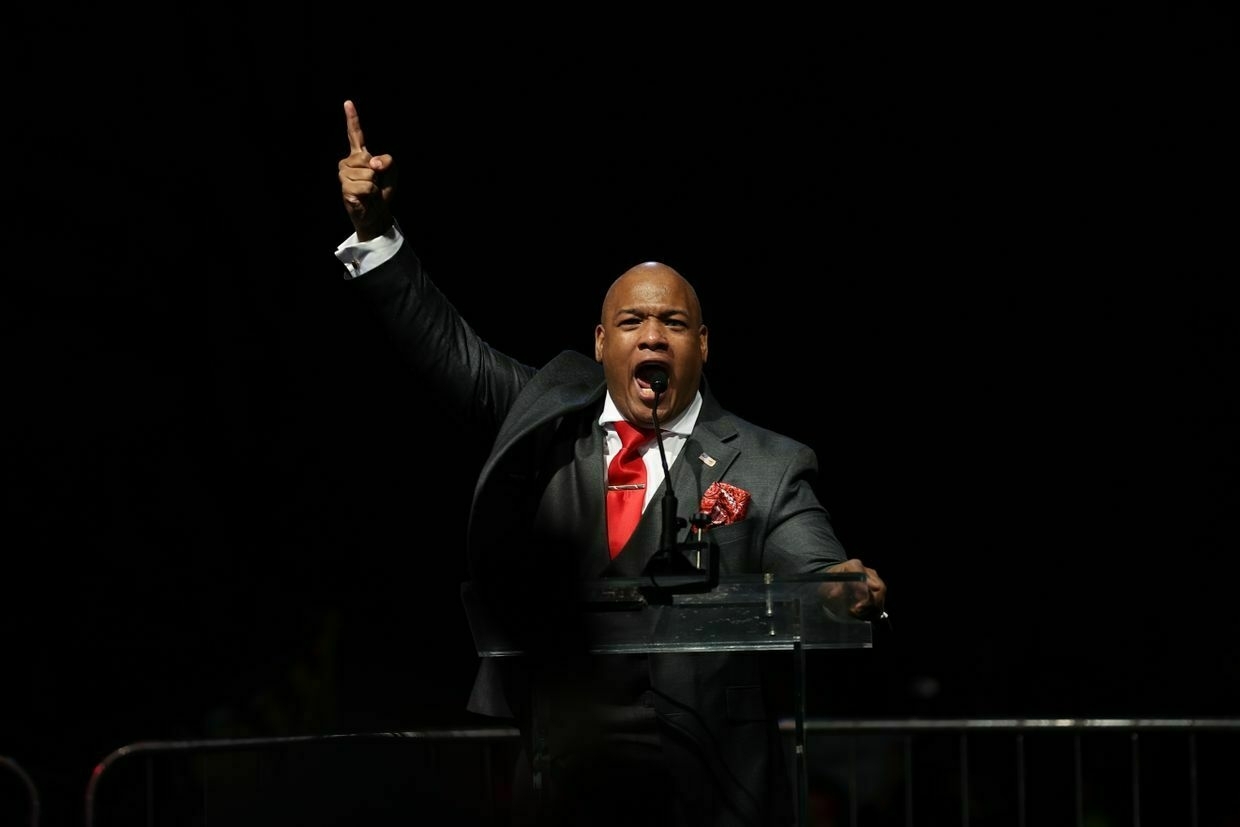
-
'Supporting Ukraine is America first' — Trump's spiritual advisor, Pastor Mark Burns
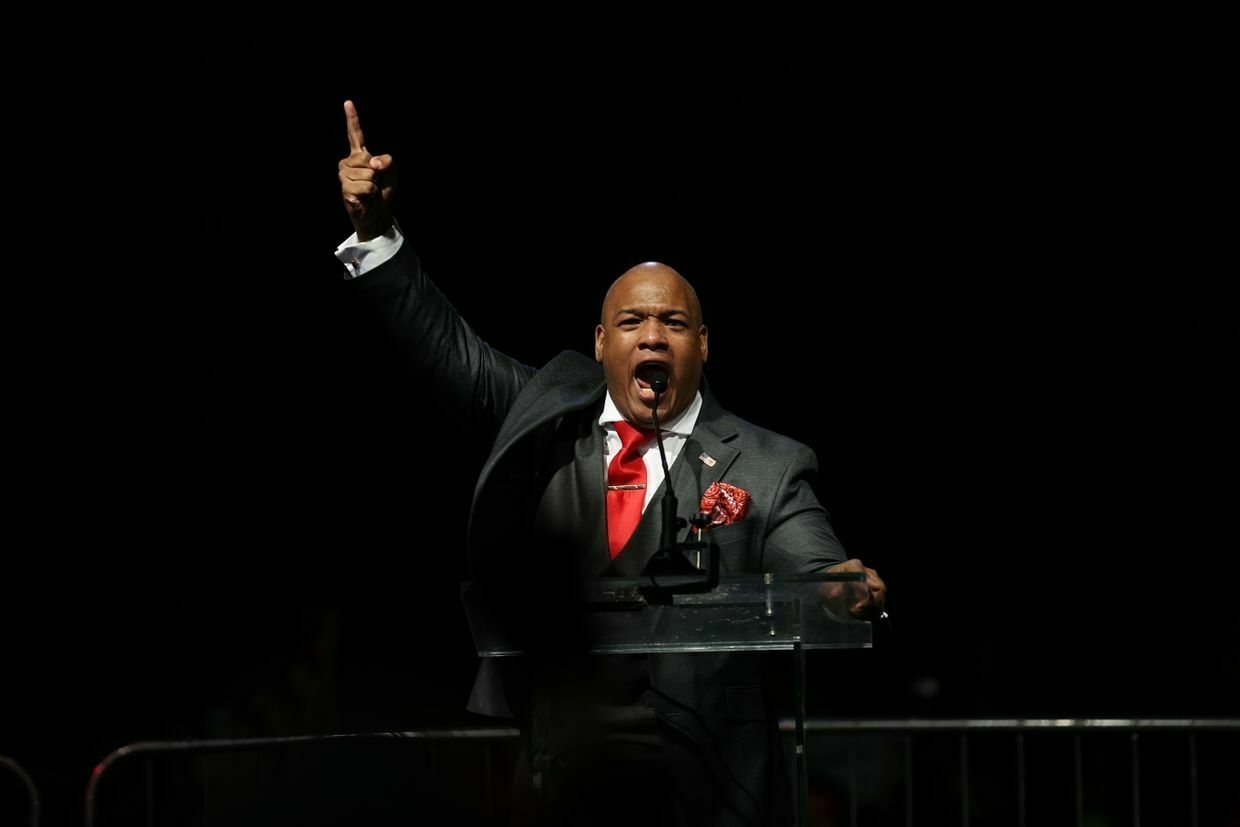
When U.S. President Donald Trump paused military aid to Ukraine last month, the man described as his “spiritual advisor,” Pastor Mark Burns, backed the decision.
This week, Burns is urging him to send Kyiv more tanks, fighter jets, and air defense.
“I now believe that supporting Ukraine is America first,” he told the Kyiv Independent in an interview on April 9.
Burns’s dramatic shift in stance comes after a trip to Ukraine where he witnessed the atrocities committed by Russia first-hand, visiting the site of a missile attack in Kryvyi Rih, which killed 20 people, including nine children.
Yesterday, a Russian missile struck Kryvyi Rih, killing 16, including 6 children. A tragic loss of innocent lives. The world must condemn this brutality and stand with Ukraine against such terror. Faith is a choice, not a feeling! pic.twitter.com/Qbe0HqlB2P
— Pastor Mark Burns (@pastormarkburns) April 6, 2025The Kyiv Independent spoke with Burns to find out more about his visit, and why he's now urging everyone to "throw politics out the window" and back Ukraine.
Editor's note: The interview has been edited for language and clarity.
The Kyiv Independent: Can you describe what has caused you to change your stance on Ukraine?
Pastor Mark Burns: Obviously being on the ground in Ukraine has changed my opinion significantly. I am on record as being one of the staunch opponents of supporting Ukraine.
But it took me being in Kyiv, being at Bucha, seeing the atrocities that have taken place, innocent lives being killed, executed, and knowing the nearly 700 religious institutions have been intentionally targeted by the Russians, and 20,000 children have been kidnapped and deported back to Russia, not including the 1.3 million children that are unaccounted for.
When you hear these atrocities… It changed my perspective significantly. I now believe that supporting Ukraine is America first.
I am still a staunch supporter of who I believe is the greatest president in my lifetime — President Donald Trump.
And so my support for Ukraine is not a stab at him, but a call to every Republican, every conservative, every American, and those around the world who, like me, have been brainwashed by fake news media about Ukraine.
For instance, fake news suggested that Ukraine hated churches, Ukraine hated ministries, that they intentionally destroyed ministries.
Well, that is a bold-faced lie, because I was in the midst of some of Ukraine's greatest spiritual leaders from all different sects, religious organizations, in one room in Kyiv, and they all have the same common ground — they have the right to practice their faith in Ukraine.
When I was on the ground, and you're talking to these people, and once you see the atrocities at the hands of the Russians, politics goes out the window.
Just a couple of days ago nine children were killed, more innocent lives lost at the hands of the Russians.
My heart as a man of God begins to pour out, and I've been echoing that message ever since, that I was wrong. And the power of the cross teaches me to admit when you're wrong, to have a humbled heart, and to say 'I was wrong.'
Nobody paid me to go to Ukraine. I paid for my own tickets to get to Ukraine. Nobody brought me there with the hope that I would communicate their message.
"Russia fears President Donald Trump, and they should, because I know him very deeply, very personally, and he's a man of true conviction."
This is simply human beings being destroyed at the hands of the Russians, and that's why my heart has become now a staunch supporter of supporting Ukraine.
I'm now echoing this message at the highest levels of government in the United States and around the world — that we need to get behind Ukraine. Russia is the aggressor.
And I'm very proud that President Trump has made it very clear that he is pissed off.
That's the words he used. Pissed off at (Russian President) Vladimir Putin. He's pissed at Vladimir Putin, and that he needs to come to the negotiating table immediately, or he will issue secondary tariffs on Russian oil, and go after the countries that are supporting or buying Russian oil.
And so that just shows you how determined the president is in getting this war ended.
If Russia doesn't come to the table for a peace negotiation, President Trump is not the man to be messed with.
Russia fears President Donald Trump, and they should, because I know him very deeply, very personally, and he's a man of true conviction.
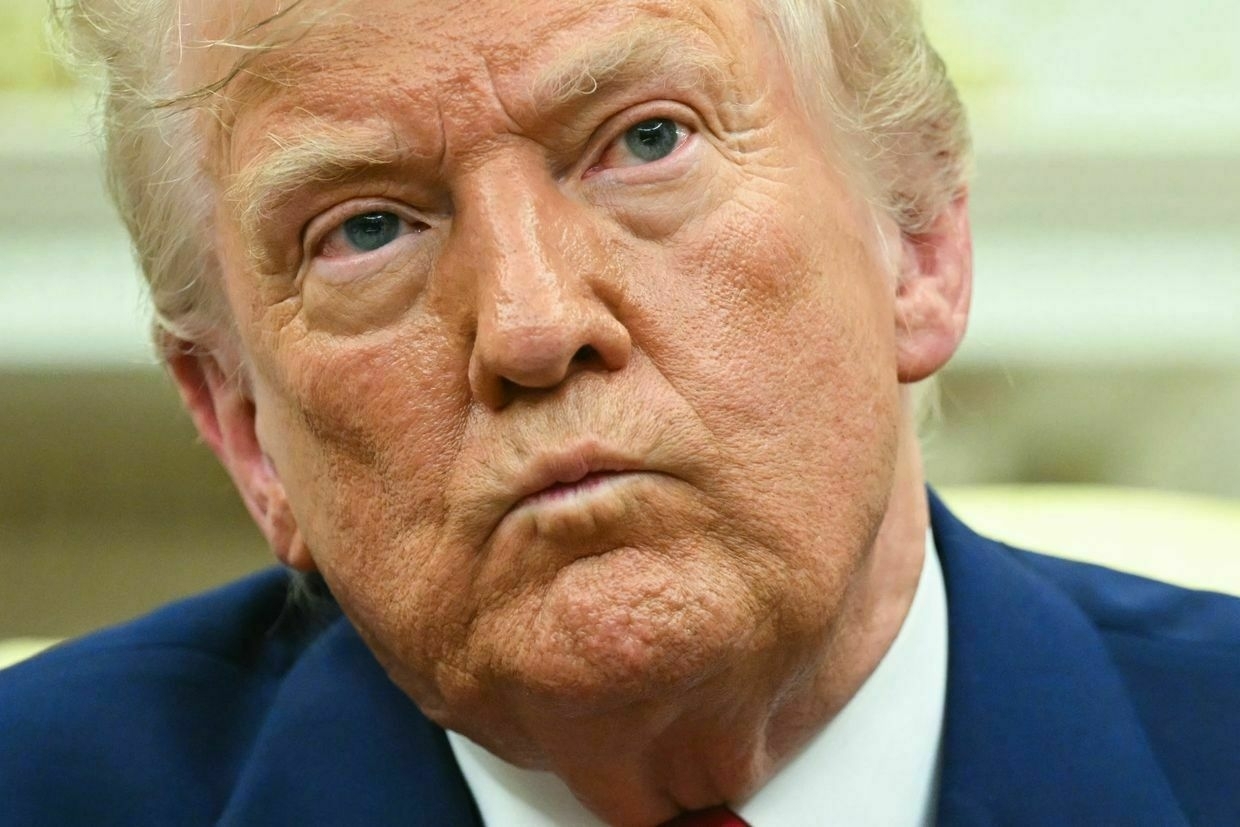
US President Donald Trump looks on during a meeting with Israeli Prime Minister Benjamin Netanyahu in the Oval Office of the White House in Washington, D.C., U.S. on April 7, 2025. (Saul Loeb / AFP via Getty Images) The Kyiv Independent: You were at Kryvyi Rih, the site of a missile attack last week, which killed 20 people, including nine children. That attack came after Trump began peace talks and negotiations. Do you think that Trump is doing enough if Russia is still carrying out attacks like that?
Pastor Mark Burns: I think that Vladimir Putin is at the end of his rope. I think that he has tested the patience of President Donald Trump, and he's come to the end of it.
I'm leaving the negotiations to the professionals, the ones that President Trump has appointed.
The Kyiv Independent: Ultimately, all of the acts of violence against civilians and churches and everything else in Ukraine for the last more than three years now have been ordered by one man, Vladimir Putin. How do you describe a person who is capable of doing that?
Pastor Mark Burns: Evil, pure evil.
As a former United States South Carolina Army National Guard member and having been a trained infantryman, I understand attacking military strategic positions that house military outposts.
But to attack civilians, the elderly, women, children, hospitals, schools, this is beyond military advancement. That is just pure evil. And that is what Vladimir Putin has done.
And that's what he's continuing to do.
Ukraine is a sovereign nation, and they have been ruthlessly, relentlessly attacked by an aggressor called Russia, led by a man, dictator Vladimir Putin.
It is evil. And it should never be allowed.
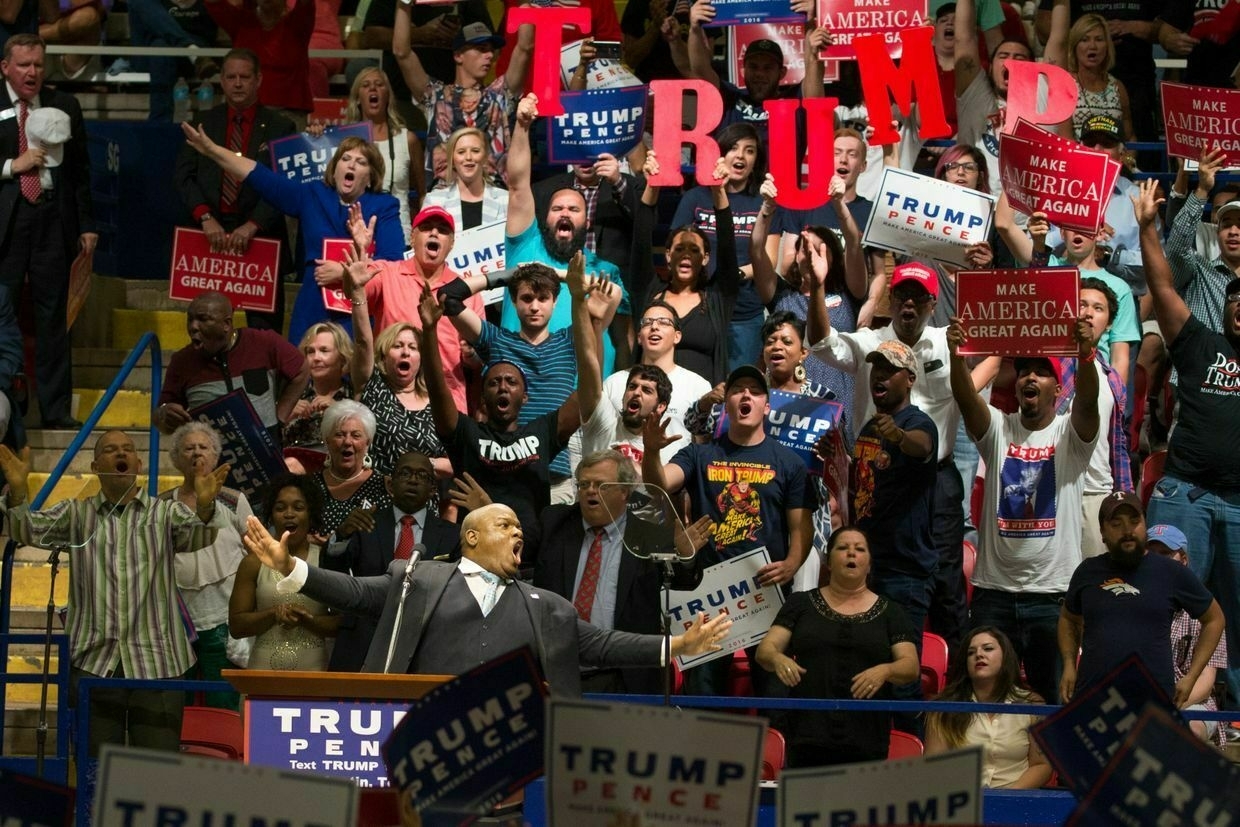
Pastor Mark Burns speaks during a rally for Republican presidential candidate Donald Trump at the Travis County Exposition Center in Austin, Texas, U.S. on Aug. 23, 2016. (Suzanne Cordeiro / AFP via Getty Images) The Kyiv Independent: You also spoke earlier about Russia's campaign against religious institutions and groups in Ukraine, including evangelical Christians. Yet, there are still people in the U.S. who profess to be evangelical Christians, and yet they're supporting Putin. How do you explain that?
Pastor Mark Burns: I posted (on social media) in the middle of the night at a hotel in Kyiv. I was laying in my bed and the Holy Spirit began to download to me things to say in my posts.
There was a video that one of my staff members put up, and it showed the third year anniversary of the Day of Liberation in Bucha.
And a very strong supporter of President Trump made this comment. And they said, 'This is very sad, Pastor, that this is happening in Ukraine. But no more money to Ukraine. I'm sorry. No more money to Ukraine.'
And I responded to this individual and I said 'you would not be saying that if you were here on the ground.'
When you're on the ground in Ukraine, and you're seeing the devastation, and you're seeing the tears, and you're seeing the soldiers who are on the ground, they don't want money from America — they want ammunition.
They need the tools to protect their homeland. They were invaded.
It's no different from the British invading America and the Tories and the loyalists — those citizens took up arms, they were not trained soldiers. They were just regular farmers and blacksmiths, and they took up arms to defend their territory.
That's exactly what Ukraine is doing.
When you see this, you can hear the passion in my heart. This may politically kill me, and I could care less. I don't care. It's not about what's popular, it's about what is right.
I can tell you the spirit of Ukraine is not broken. It is very much alive and is very much ready to defend its homeland. But more importantly than ammo, they want peace.
That's why I'm taking time to talk to anybody and everybody that will that want to talk to me so that this message that what God showed me on the ground of Ukraine has moved my heart, that I may move somebody else's heart and that the world would get behind Ukraine, just like how the world got behind South Africa during the time of Nelson Mandela.
My tears go out for those that are lost and are dying and are still being killed. And trust me when I tell you my voice is screaming from the mountaintop to whoever will listen.
We need to end this conflict in Ukraine immediately.
Trump didn’t impose tariffs on Russia but they might be wrecking its economy regardlessU.S. President Donald Trump has inadvertently hit Russia’s economy after his “Liberation Day” tariffs caused oil prices to drop drastically on April 7, with potentially massive ramifications for the Kremlin’s ability to fund its ongoing war in Ukraine. Russia has so far failed to agree to a fullThe Kyiv IndependentDominic Culverwell
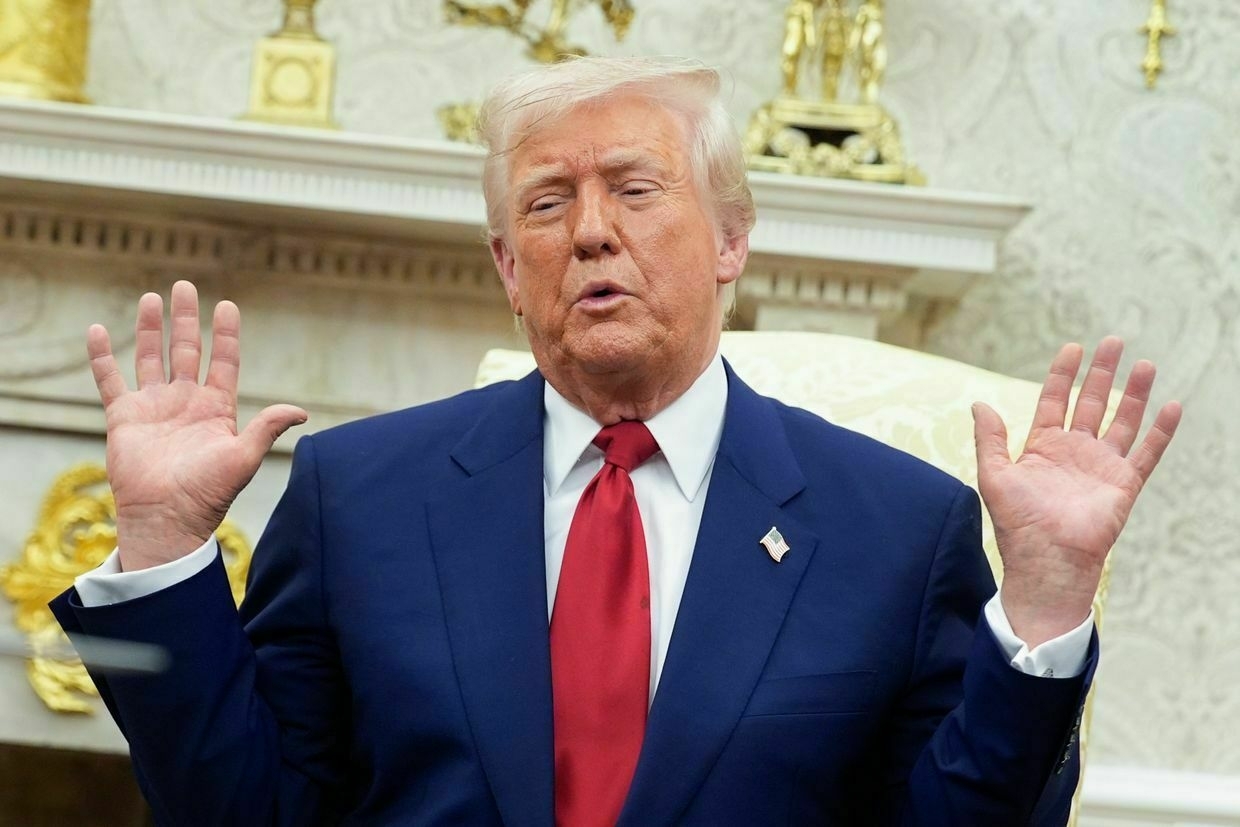
-
Ukraine Business Roundup — Tariff war
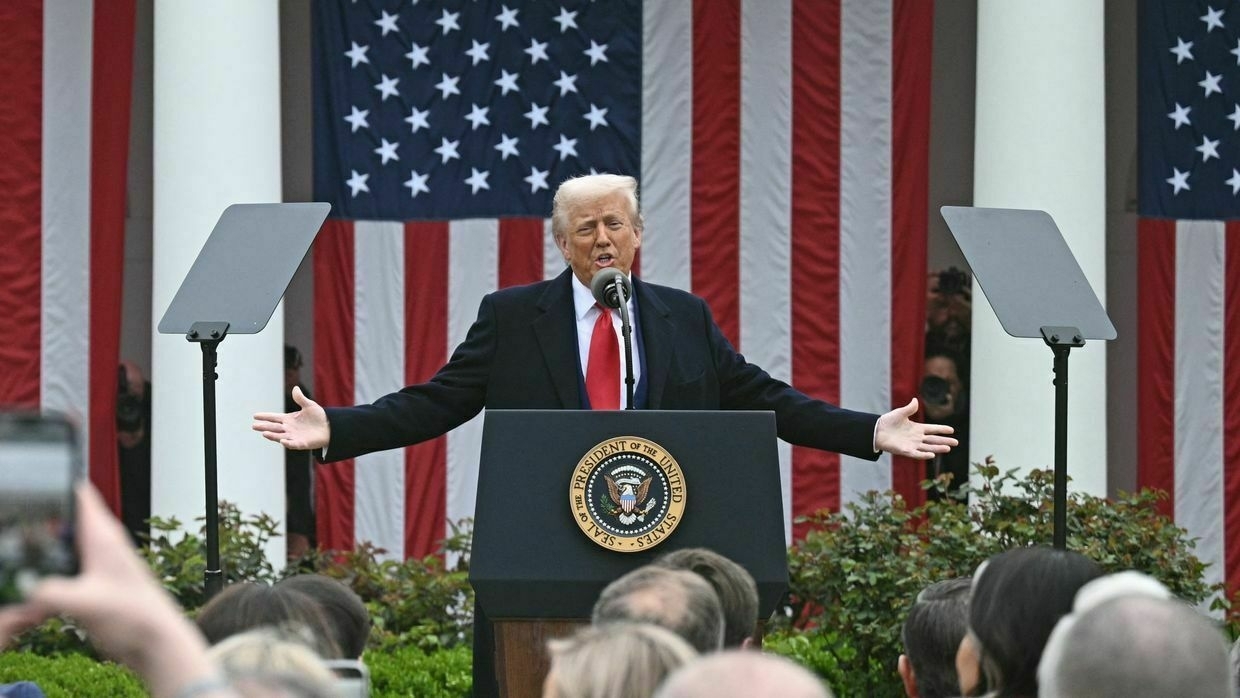
The following is the April 9, 2025 edition of our Ukraine Business Roundup weekly newsletter. To get the biggest news in business and tech from Ukraine directly in your inbox, subscribe here.
President Trump shocked the world on April 2 when he announced what he dubbed “Liberation Day,” slapping tariffs on allies and rivals alike. Ukraine was hit with a 10% tariff on all its goods, apart from metal products, which already had a 25% tariff imposed on them in March.
This will be “difficult but not critical for the country’s economy,” said Ukraine’s Economy Minister Yuliia Svyrydenko. Ukraine’s trade with the U.S. was already on a decline and only made up around 2% of Ukraine’s total exports last year, economist Oleksandra Myronenko from the Center for Economic Strategy (CES) told the Kyiv Independent.
You can read the full interview with Myronenko here.
Many in Ukraine were quick to point out that Russia and Belarus were excluded from the list of countries that got tariffs put on them — to some, this seemed like yet another sign Trump is favoring Russia and even its ally Belarus over Ukraine.
Why did Trump tariff nearly the entire world? Trump claims the U.S. is the victim of a trade imbalance and accused countries of “looting, raping, pillaging, and plundering the U.S.” He believes tariffs will help kick-start American industry, despite ecomists arguing it will cause a global recession.
When confronted with the decision to exclude Russia and Belarus, the White House said it hardly traded with them and that the two countries were already under sanctions.
However, the U.S. still imported $3 billion worth of goods from Russia last year — over three times the value of Ukrainian imports and far more than the uninhabited Heard and McDonald Islands, which received a 10% tariff despite only housing penguins and seals.
What does this mean for Ukraine? The Economy Ministry said it is rolling out support programs for businesses to ease the impact of the tariffs, especially for smaller companies that will be most affected. Ukraine said it will not retaliate with tariffs of its own on American imports, which reached $3.4 billion last year.
Steel products like pig iron and pipes were Ukraine’s largest exports to the U.S. Agricultural exports, like food and fertilizers, were also notable and will decline slightly, said Myronenko.
Yet, the biggest problem will be the knock-on effect of a trade war. Already, markets are bracing for a recession as other countries face off with Washington.
China threatened 34% tariffs on American goods, leading Washington to respond with an additional 50% tariff on China on top of the 34% tariff it imposed last week and a previous 20% levy.
The EU, Ukraine’s largest trading partner, is also threatening the U.S. with tariffs after Washington imposed a 20% tariff on all European goods.
A trade war will lead to a contracted global economy that will also be felt in Ukraine, warned Myronenko.
A little bit of positive news. Trump may have inadvertently dealt a major blow to Russia’s war machine. On the back of the tariffs, oil prices have slumped massively as producers brace for a recession. The upside is that Russian oil prices have also nosedived, with Ural crude falling to a 21-month low of $51.54 per barrel.
Moscow budgeted $70 per barrel this year, and prices below $60 could severely hinder Russia’s revenues. Oil sales make up nearly a third of Russia’s budget, and with no sign of a rebound anytime soon, Russia’s precariously balanced economy faces fresh pressure.
You can read my latest story on Russia’s oil price crisis here.
Minerals deal: More dramaKyiv has been wrapped up in drama after the Financial Times leaked the latest draft of the minerals deal last week.
The leak, which was also shared by former Ukraine Reconstruction Agency Head Mustafa Nayyem, inflamed already heightened tensions with Washington. In response, President Volodymyr Zelensky said he sent out the security services to track down the leak’s source.
Kyiv is subjecting employees of different ministries to controversial lie detector tests, the Financial Times reported. Polygraph tests have questionable results but are commonly used in Ukraine. Ukrainian officials have declined to say how many people have been questioned.
The leaked draft led to an uproar in Ukraine as it would effectively give the U.S. unprecedented control over Ukraine’s natural resources and infrastructure. Experts also told the Kyiv Independent that it could derail Ukraine’s EU accession by undermining a previous minerals proposal Kyiv signed with Brussels back in 2021. You can read the full story on that here.
U.S. Treasury Secretary Scott Bessent accused Ukraine’s leadership of disrupting the deal in an interview with far-right U.S. commentator Tucker Carlson. Despite the huge backlash in Ukraine, he stuck to the line that the deal is a “win-win” and a “genuine economic partnership.”
He also claimed that Russia “didn’t like the look” of this deal because it was “something durable” for both the U.S. and Ukraine.
What’s next? Kyiv’s crackdown after the leak has spooked officials, who are now even more tight-lipped about the negotiation process.
We know that a Ukrainian delegation will visit the U.S. this week, led by the Economy Ministry and joined by the Finance Ministry and Foreign Affairs Ministry. A law firm will also join the delegation to help with the negotiation.
Ukraine’s Foreign Minister Andrii Sybiha said on April 8 that Ukraine has prepared its position on the deal and its “vision” of the text. He stressed that the deal should benefit both Ukraine and the U.S. without risking Ukraine’s EU membership.
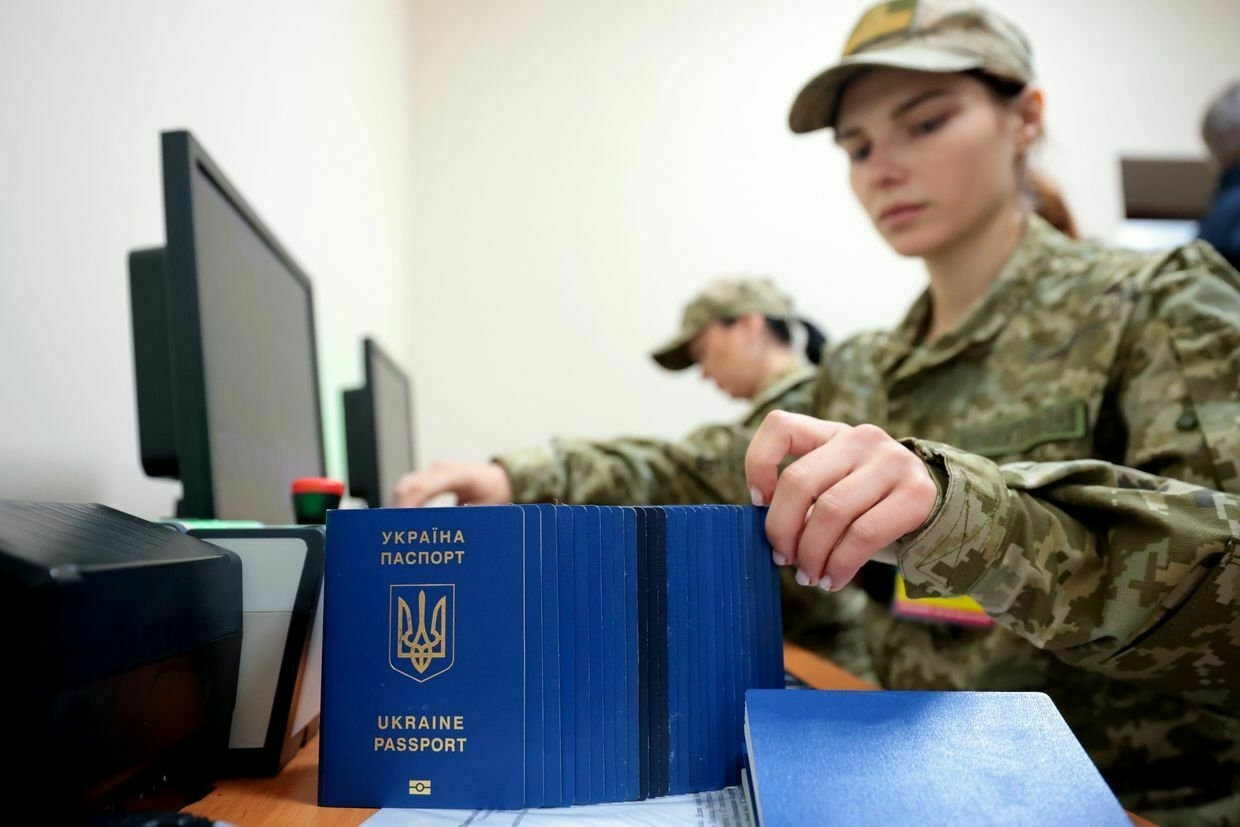
A border guard arranges Ukrainian passports at a checkpoint in Rava-Ruska, Ukraine, on Oct. 15, 2023. (Alona Nikolaievych / Ukrinform / Future Publishing via Getty Images) Cybersecurity: Massive data breachIn an article published last week, Kyiv Independent reporter Kollen Post revealed that shoddy cybersecurity at Ukrainian vehicle inspections has exposed hundreds of thousands of personal documents for the past four years.
The lack of security placed reams of personal data at risk of exploitation by bad actors, including Russian intelligence and hackers.
The data leak comes as Ukraine has been — in theory — on high alert about cybersecurity for over three years.
Formerly public data for many Ukrainian services have gone dark since Russia’s full-scale invasion. This is in large part out of concern that Russian intelligence or hackers will use information from sources like property registries to locate, blackmail, and extort Ukrainians.
In this leak — largely scans of passports, taxpayer identification numbers, driver’s licenses, and vehicle registrations — the documents span a broad stretch of Ukrainian geography and demography. Mostly, they identify people who were buying or selling used cars internationally.
Up until April 1, the documents were available, unprotected and unencrypted, on a server of one of the largest cloud storage providers in the world that, though tough to get to for regular users, is easy enough to find for bad actors.
The Kyiv Independent contacted the relevant authorities on March 26, including the Digital Transformation Ministry, the Communities Development Ministry, the State Security Service, and the Justice Ministry.
All denied ownership of the data. Yet, after repeated follow-up, the data on the server began to go private on April 1, 2025 — just shy of three years after Jake Dixon, cybersecurity and access management specialist who spotted the documents, first reported the problem to Ukrainian authorities.
As of publication, none of the officials contacted would acknowledge involvement in taking the data offline, but someone was clearly reacting to inquiries.
Read the full story here.
What else is in the newsUkrainian steelmaker receives first batch of US coking coal after Pokrovsk mine halt
Metinvest, Ukraine’s largest steel producer, has received the first shipment of 80,000 metric tons of coking coal from its U.S.-based enterprise this year, the company said on April 8. The U.S. supplies are meant to offset the loss of coking coal from the mine near Pokrovsk, which has suspended operations as Russian forces are closing in on the Donetsk Oblast town.
Ferrexpo cuts pellet production by 26% after Ukraine suspends VAT refunds
The company said in a press release on April 7 that it had scaled back its operations as a result of a VAT refund suspension, which amounted to approximately $12.5 million for January. On March 27, Ferrexpo announced that Ukrainian tax authorities had suspended VAT refunds to the company due to personal sanctions imposed on its owner, businessman Kostyantyn Zhevago. The company contended that these sanctions should not be leveraged to apply financial pressure on Ferrexpo, particularly given that the majority of its voting shares are held by international investors.
Germany finances Ukraine’s use of Starlink alternative Eutelsat, Reuters reports
Germany is financing Ukraine’s access to a satellite internet network operated by French company Eutelsat, Reuters reported on April 4, citing Eutelsat CEO Eva Berneke. The service serves as an alternative to tech billionaire Elon Musk’s Starlink, which has played a key role in Ukraine’s battlefield communications. Ukraine currently has fewer than 1,000 terminals connecting to Eutelsat’s network, but Berneke said the company aims to increase that number to between 5,000 and 10,000 “relatively fast."
Ukraine facing $10 billion deficit for reconstruction in 2025
According to Prime Minister Denys Shmyhal, international donors have allocated nearly $7.4 billion for “priority recovery projects” in 2025, leaving a nearly $10 billion deficit to finance reconstruction projects in 2025. “According to the updated RDNA4 (Rapid Damage and Needs Assessment) assessment, Ukraine’s total reconstruction cost is estimated at $524 billion over the next decade,” Shmyhal said on Telegram.
Ukrainian bakery Lviv Croissants to enter South Korean market
The Ukrainian chain Lviv Croissants will open a restaurant in Seoul in South Korea, Ukrainian media outlet AIN reported on April 2, citing a company representative. Founded in the western Ukrainian city of Lviv in 2015, the chain has since grown to over 190 locations across Ukraine, Poland, Slovakia, the U.S., and France. The franchise is known for its croissants stuffed with both sweet and savory fillings.
Subscribe to the NewsletterUkraine Business Roundup<span data-sanitized-id="ukraine-business-roundup-info" data-sanitized-class="ukraineBusinessRoundup__info"></span> <button data-sanitized-id="ukraine-business-roundup-subscribe-btn" data-sanitized-class="ukraineBusinessRoundup__form_button"> <span data-sanitized-class="ukraineBusinessRoundup__form_label">Subscribe</span> </button> </div>'Coalition of the willing' for Ukraine stalls over lack of US backstop, Bloomberg reports
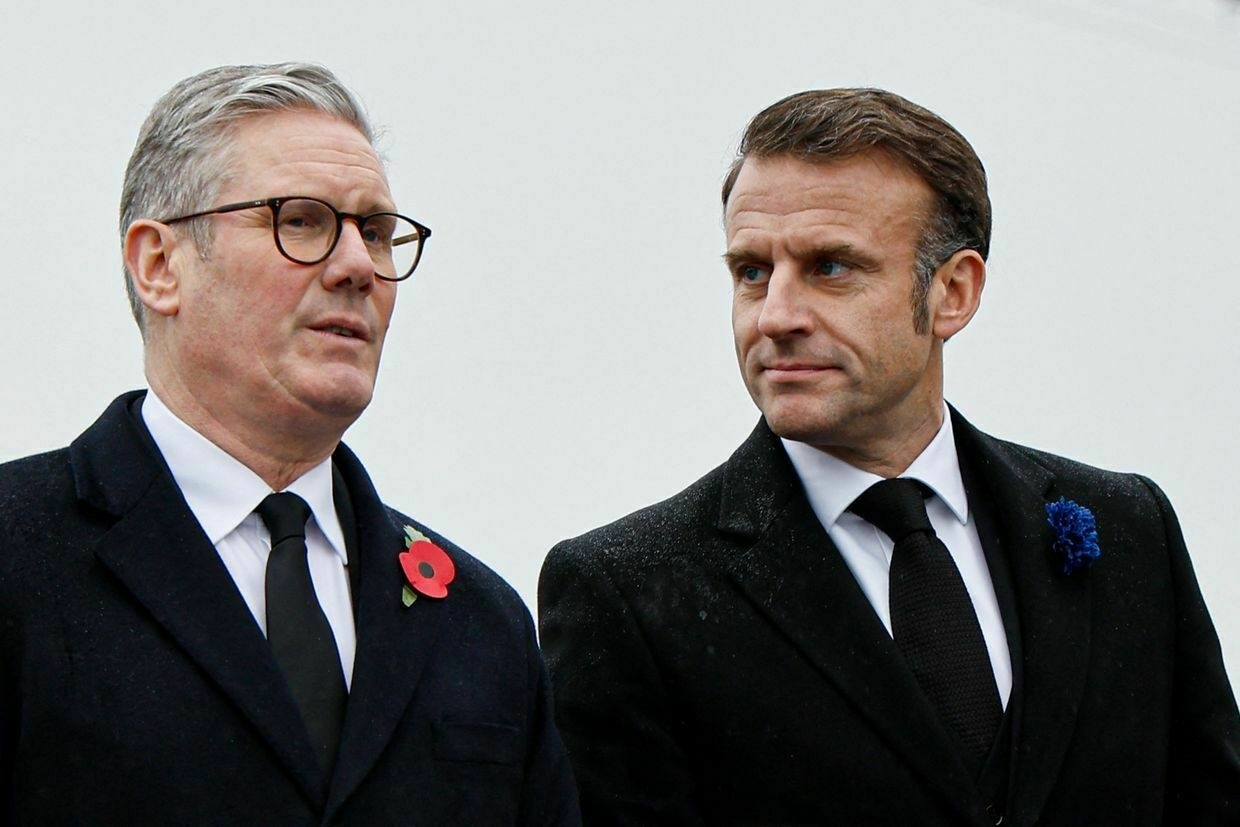
The effort of the British- and French-led “coalition of the willing” to provide security guarantees to Ukraine faces delays due to missing commitments from the U.S., Bloomberg reported on April 9, citing undisclosed sources.
The coalition of European and other partners is meeting at NATO Headquarters in Brussels on April 10 to discuss a path toward a safe and secure Ukraine in the event of a ceasefire, with the deployment of European peacekeepers floated as a possible part of the plan.
The Trump administration has ruled out U.S. participation in the so-called “reassurance force,” but London and Paris seek to convince Washington to at least provide airpower, intelligence support, or border surveillance as a backstop to the coalition’s efforts.
U.S. President Donald Trump has yet to offer any clear security guarantees to Ukraine and the coalition as Washington signals a reduced military presence on the continent.
U.K. officials insist that the U.S. contribution is a necessary part of the coalition’s efforts, Bloomberg reported, casting doubt on the initiative’s future unless the allies succeed in convincing Trump.
Publicly, French President Emmanuel Macron took a bolder line, saying the plan for the reassurance force would go ahead “with or without the U.S."
At least 37 countries, including European, Asian, and Commonwealth nations, have been involved in the coalition’s discussions, with 15 reportedly ready to contribute their troops. Other members have been asked to provide other forms of support, including intelligence, arms, or naval support.
The Ukrainian military is still perceived as the main pillar of deterrence against further Russian aggression, while the allied troops, which could number between 10,000 and 30,000, would secure strategic facilities in the rear.
U.K. Prime Minister Keir Starmer first presented the coalition during a London summit on March 2 amid growing uncertainties about continued U.S. support. Trump has not approved any new defense aid packages for Ukraine and even briefly paused the already approved military assistance to push Kyiv to the negotiating table.
Trump’s efforts to broker a ceasefire have stalled, as Moscow has rejected a full 30-day truce agreed upon by Kyiv and Washington and reportedly violated a partial truce on strikes against energy infrastructure.
Trump didn’t impose tariffs on Russia but they might be wrecking its economy regardlessU.S. President Donald Trump has inadvertently hit Russia’s economy after his “Liberation Day” tariffs caused oil prices to drop drastically on April 7, with potentially massive ramifications for the Kremlin’s ability to fund its ongoing war in Ukraine. Russia has so far failed to agree to a fullThe Kyiv IndependentDominic Culverwell
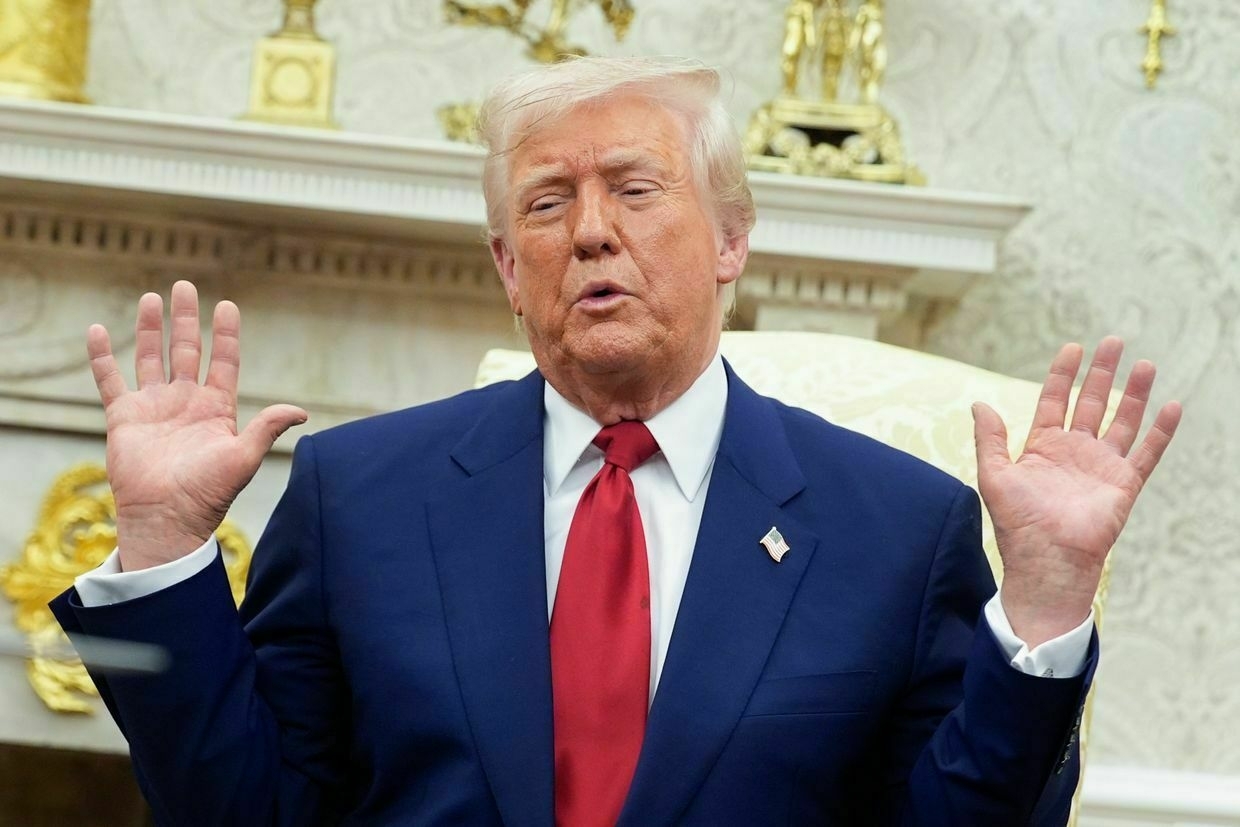
Foreign companies funding Ukraine's army to face re-entry ban in Russia, media reports
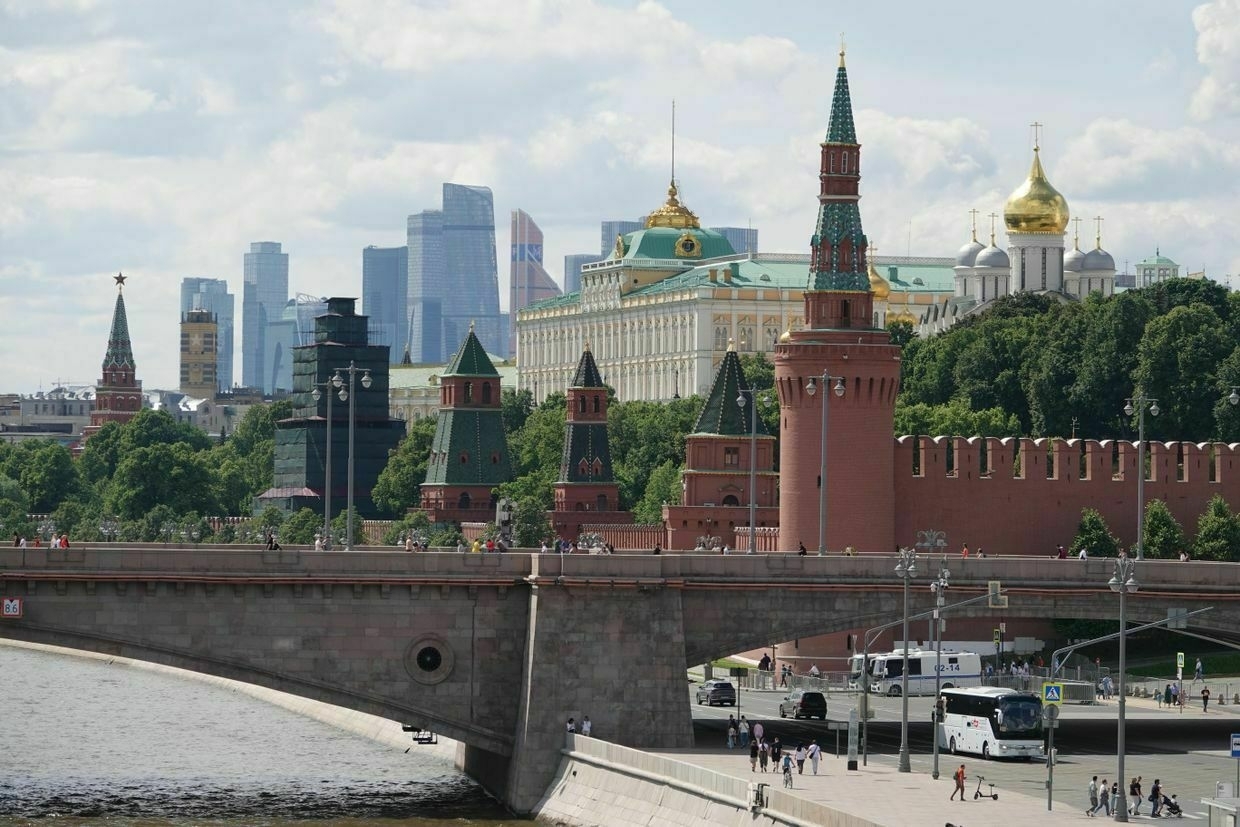
Foreign companies that left Russia and financed Ukraine’s army, as well as companies branded as “foreign agents,” will not be allowed to return to the country’s market, Russian state-controlled RBC news agency reported on April 10, citing undisclosed sources.
Russian President Vladimir Putin ordered the authorities in February to prepare for the return of Western companies, emphasizing that Russian firms should have “certain advantages” over those re-entering the market.
The news comes amid a thaw in relations between Moscow and Washington as the new Trump administration seeks to broker a peace deal in Ukraine.
As of late March, Moscow had not received official requests from foreign companies seeking to return, Deputy Chairman of Russia’s Security Council Dmitry Medvedev said.
The final version of the document has not yet been agreed upon, according to RBC’s sources.
Preliminary criteria say that foreign firms willing to return to Russia will not be allowed to do so if they have a “hostile position,” finance Ukraine’s Armed Forces, or are classified as “undesirable organizations” or “foreign agents."
The latter two classifications have been widely used by Russia to target and silence groups and individuals who are critical of the government, including independent journalists, activists, and NGOs.
Companies that stopped fulfilling their obligations to their employees and owed wages, taxes, and other mandatory payments before leaving Russia may also be banned from returning.
In addition, foreign firms may be obliged to localize production to a certain level, transfer technologies to Russia, and locate production facilities and engineering and scientific development centers in the country, RBC reported.
Since Russia launched its full-scale invasion of Ukraine in 2022, hundreds of Western companies have withdrawn from the Russian market, unwilling to contribute to the country’s economy or war effort.
According to the Kyiv School of Economics Institute, 472 foreign firms have fully exited, while another 1,360 have scaled down their operations.
US, Russia conduct prisoner swap, WSJ reportsMoscow released Ksenia Karelina, a U.S.-Russian dual national accused of treason for allegedly raising money for the Ukrainian military, the WSJ wrote.The Kyiv IndependentKateryna Denisova

Hegseth to join Ramstein summit online, media reports
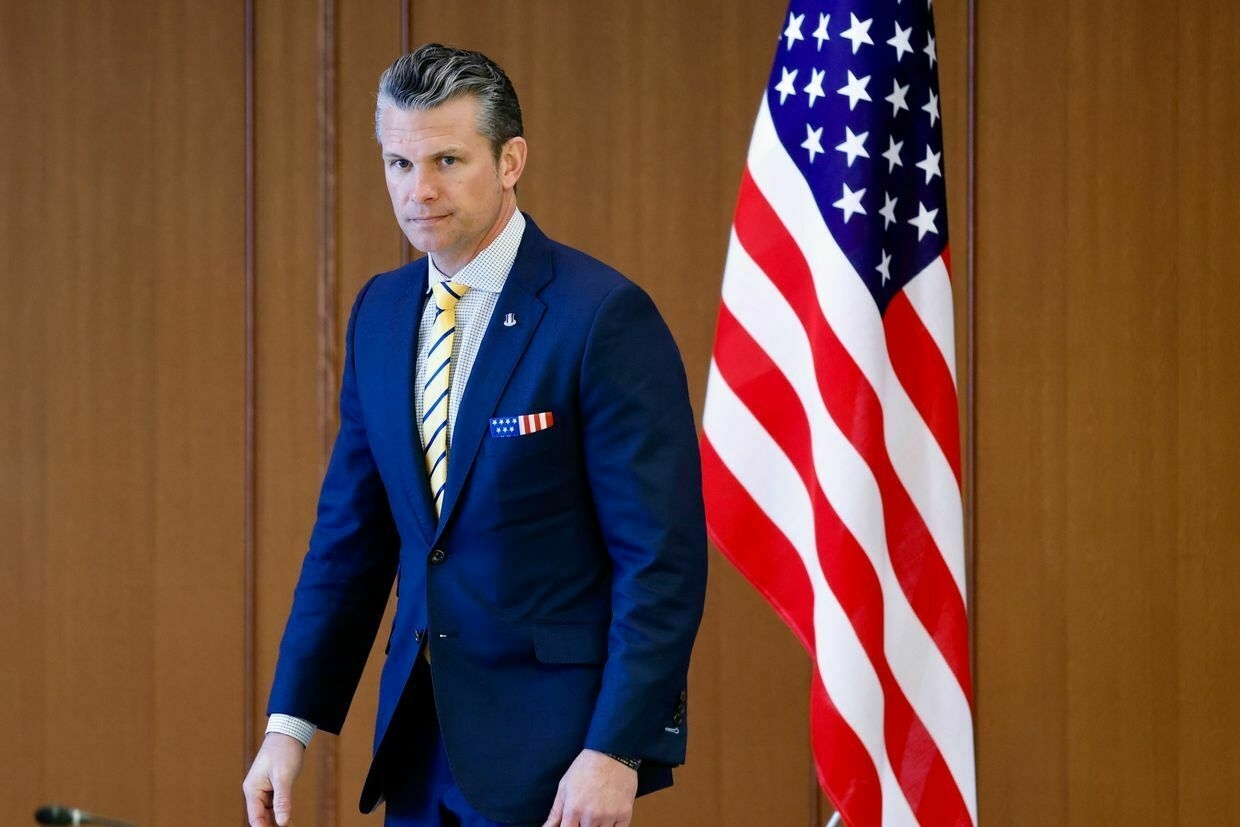
U.S. Defense Secretary Pete Hegseth will join the upcoming Ramstein-format meeting through a video conference despite earlier rumors he might skip the summit entirely, Defense News reported on April 8, citing U.S. and European official sources.
The April 11 meeting of the Ukraine Defense Contact Group (UDCG) will take place in Brussels under the chairmanship of the U.K. and Germany.
Hegseth’s predecessor, former Defense Secretary Lloyd Austin, launched the UDCG after the outbreak of Russia’s full-scale war in 2022 to coordinate assistance among some 50 of Kyiv’s allies, jointly providing $126 billion in military aid for Ukraine.
European officials said that Hegseth joining online is a better option than his complete absence, but they would still prefer him arriving in person, Defense News wrote. The news outlet initially reported that, according to official sources, the Pentagon’s chief would not attend the summit in person or online.
Austin has traditionally chaired the UDCG’s meetings as the U.S. has been the leading military donor to Ukraine, providing some $67 billion in arms and equipment since 2022.
U.S. President Donald Trump’s accession to office in January brought a major shift in the U.S.’s foreign policy. The new administration has yet to approve any new aid package for Kyiv and signaled reduced commitment to Europe’s and Ukraine’s security.
The 26th Ramstein format meeting on Feb. 12, the first summit since Trump took office, was also the first UDCG meeting not chaired by the U.S. defense secretary as Hegseth passed the role to his British counterpart, John Healey.
Hegseth nevertheless attended the Feb. 12 meeting in person while not committing any new assistance and calling Ukraine’s hopes to join NATO and liberate all of its territories “unrealistic” in his address to the allies.
US, Russia conduct prisoner swap, WSJ reportsMoscow released Ksenia Karelina, a U.S.-Russian dual national accused of treason for allegedly raising money for the Ukrainian military, the WSJ wrote.The Kyiv IndependentKateryna Denisova

US-Ukraine technical consultations on minerals deal to start on April 11, deputy PM says
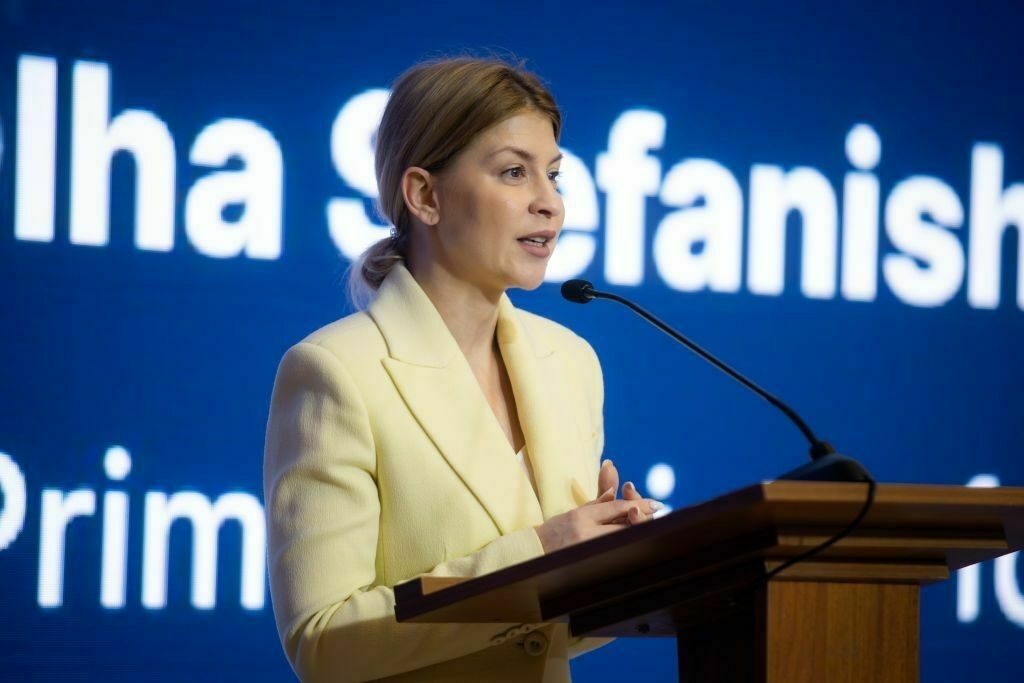
Ukraine will begin technical consultations with the U.S. on the minerals agreement on April 11, Deputy Prime Minister for European and Euro-Atlantic Integration and Justice Minister Olha Stefanishyna said, as reported by Interfax-Ukraine on April 10.
“I am not in a position to go into any details because the meeting is only tomorrow (April 11), but I will be able to comment tomorrow,” Stefanishyna said at a press conference in Brussels.
Kyiv previously announced that a team of Ukrainian negotiators would be dispatched to the U.S. to discuss the agreement this week. President Volodymyr Zelensky has said that Ukraine is open to signing the agreement as long as it ensures equal partnership and respects Ukrainian sovereignty.
The latest version of the Ukraine-U.S. minerals deal reportedly grants the United States extensive control over Ukraine’s natural resources through a joint investment fund.
The agreement has been framed by the Trump administration as vital to Ukraine’s path to peace, yet it offers no specific security commitments in return for access to strategic resources.
A framework version of the agreement was scheduled to be signed during Zelensky’s visit to Washington on February 28. The Ukrainian government approved the draft and designated either First Deputy Prime Minister Yuliia Svyrydenko or Foreign Minister Andrii Sybiha as signatories.
The plan collapsed after a tense Oval Office dispute involving Zelensky, U.S. President Donald Trump, and Vice President JD Vance. Zelensky left the White House without signing the agreement.
Trump didn’t impose tariffs on Russia but they might be wrecking its economy regardlessU.S. President Donald Trump has inadvertently hit Russia’s economy after his “Liberation Day” tariffs caused oil prices to drop drastically on April 7, with potentially massive ramifications for the Kremlin’s ability to fund its ongoing war in Ukraine. Russia has so far failed to agree to a fullThe Kyiv IndependentDominic Culverwell
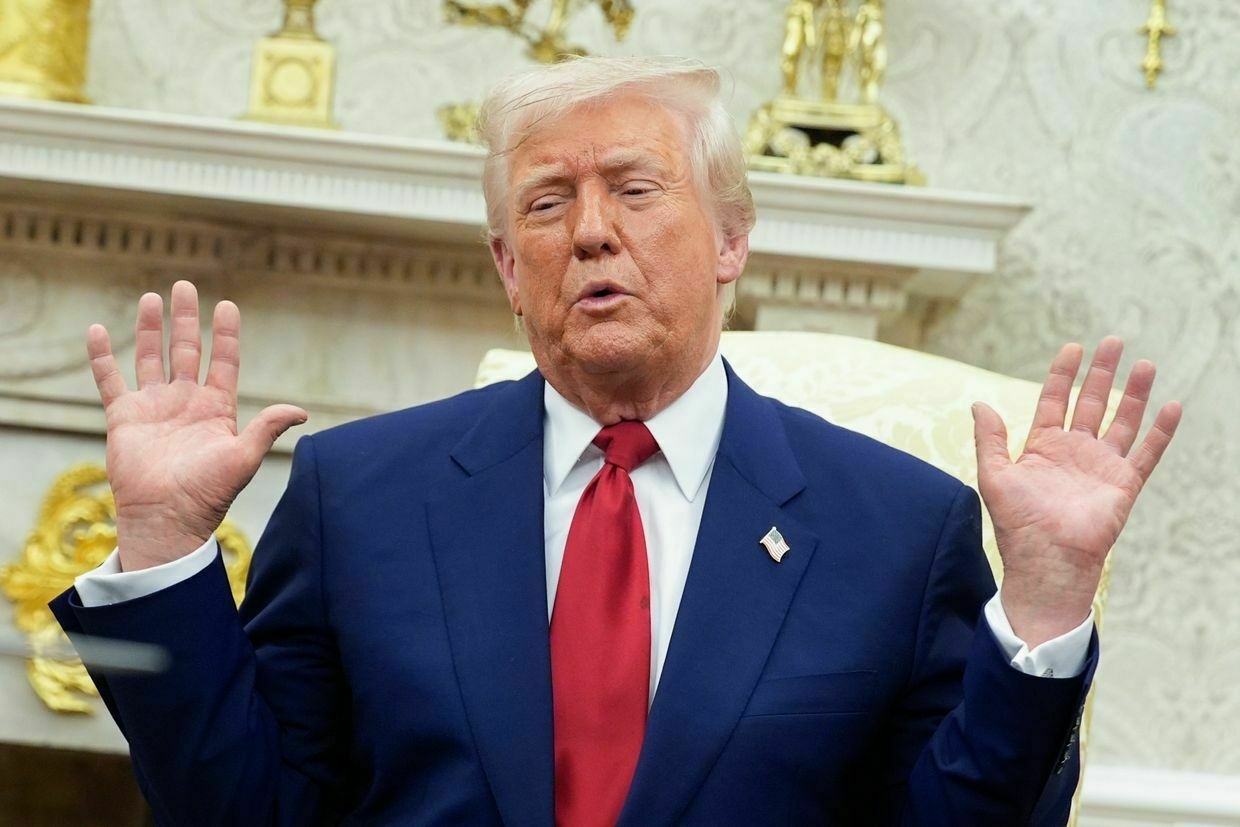
US, Russia start closed talks in Istanbul on embassy operations, media reports
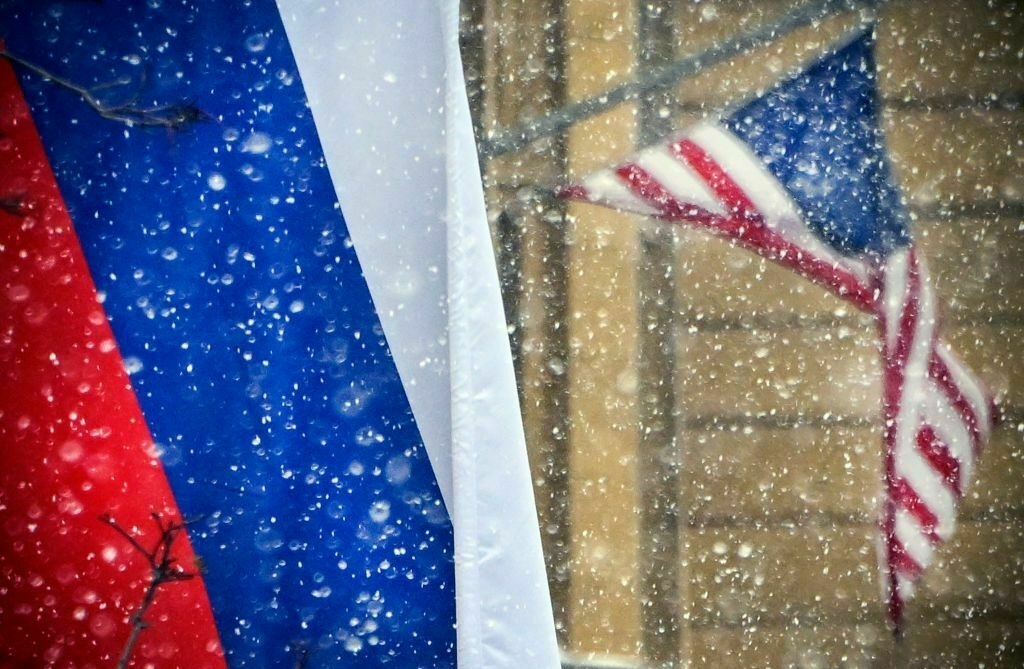
U.S. and Russian delegations have begun another round of talks regarding the work of embassies at the Russian Consulate in Istanbul on April 10, Russian state-controlled news agency TASS reported.
The consultations between Washington and Moscow will be held in a closed format and are expected to last “several hours,” TASS wrote, citing an unnamed source.
U.S. State Department spokesperson Tammy Bruce said on April 9 that the talks will be focused “solely” on embassy operations, “not on normalizing a bilateral relationship overall."
Russian and U.S. officials previously held a meeting on embassy operations in Istanbul on Feb. 27 and two rounds of talks on peace in Ukraine in Saudi Arabia.
Last week, Russian negotiator Kirill Dmitriev arrived in Washington to hold talks with U.S. officials on behalf of Russian President Vladimir Putin. Dmitriev met with Steve Witkoff, U.S. President Donald Trump’s special envoy to the Middle East, at the White House.
President Volodymyr Zelensky acknowledged on April 3 that U.S. and Russian officials were holding private conversations about the possibility of a full ceasefire in Ukraine.
Kyiv has said for weeks that it is ready to begin a complete 30-day ceasefire, in line with a proposal from Washington, as long as Russia accepts the same terms. Russia has so far refused, only agreeing to partial ceasefires on energy infrastructure and in the Black Sea in exchange for restored access to international markets.
Trump didn’t impose tariffs on Russia but they might be wrecking its economy regardlessU.S. President Donald Trump has inadvertently hit Russia’s economy after his “Liberation Day” tariffs caused oil prices to drop drastically on April 7, with potentially massive ramifications for the Kremlin’s ability to fund its ongoing war in Ukraine. Russia has so far failed to agree to a fullThe Kyiv IndependentDominic Culverwell
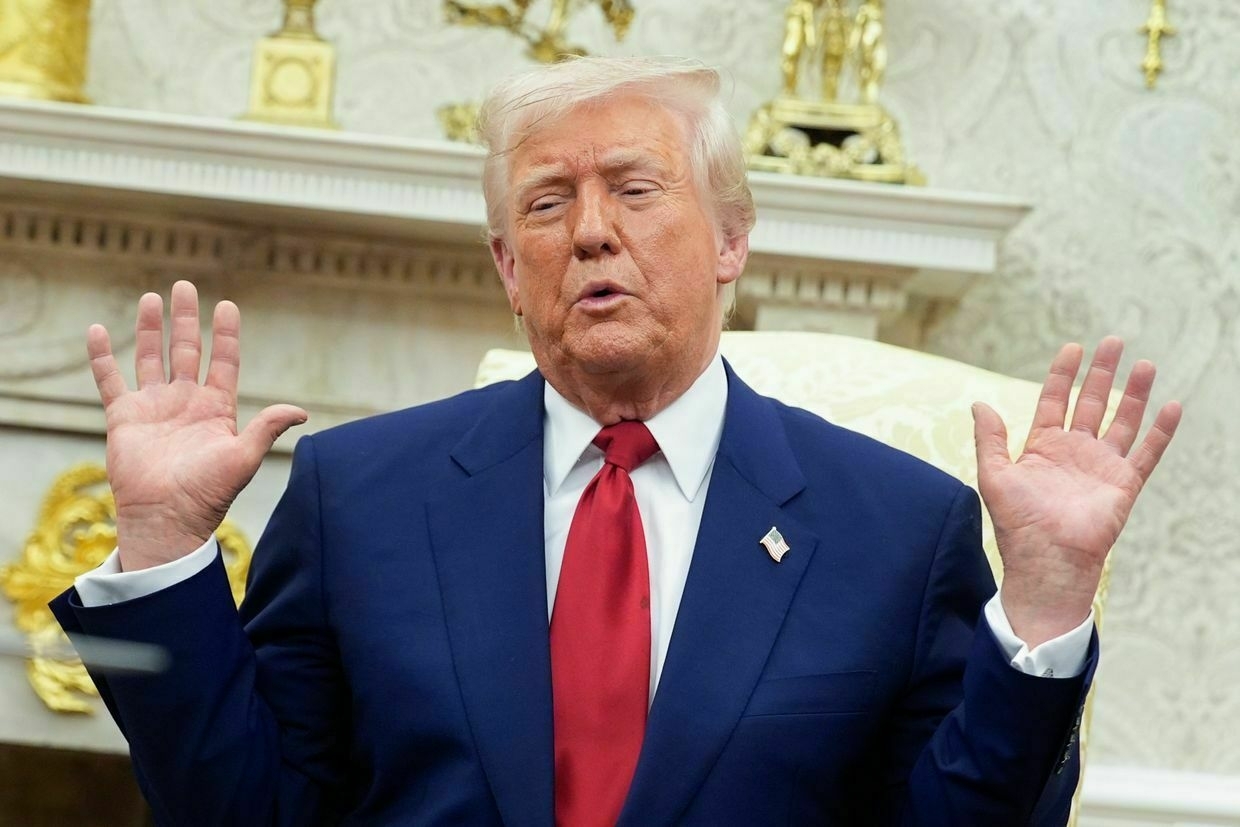
Russia seeks sanctions relief, resource deal with US via negotiator Dmitriev, Zelensky says
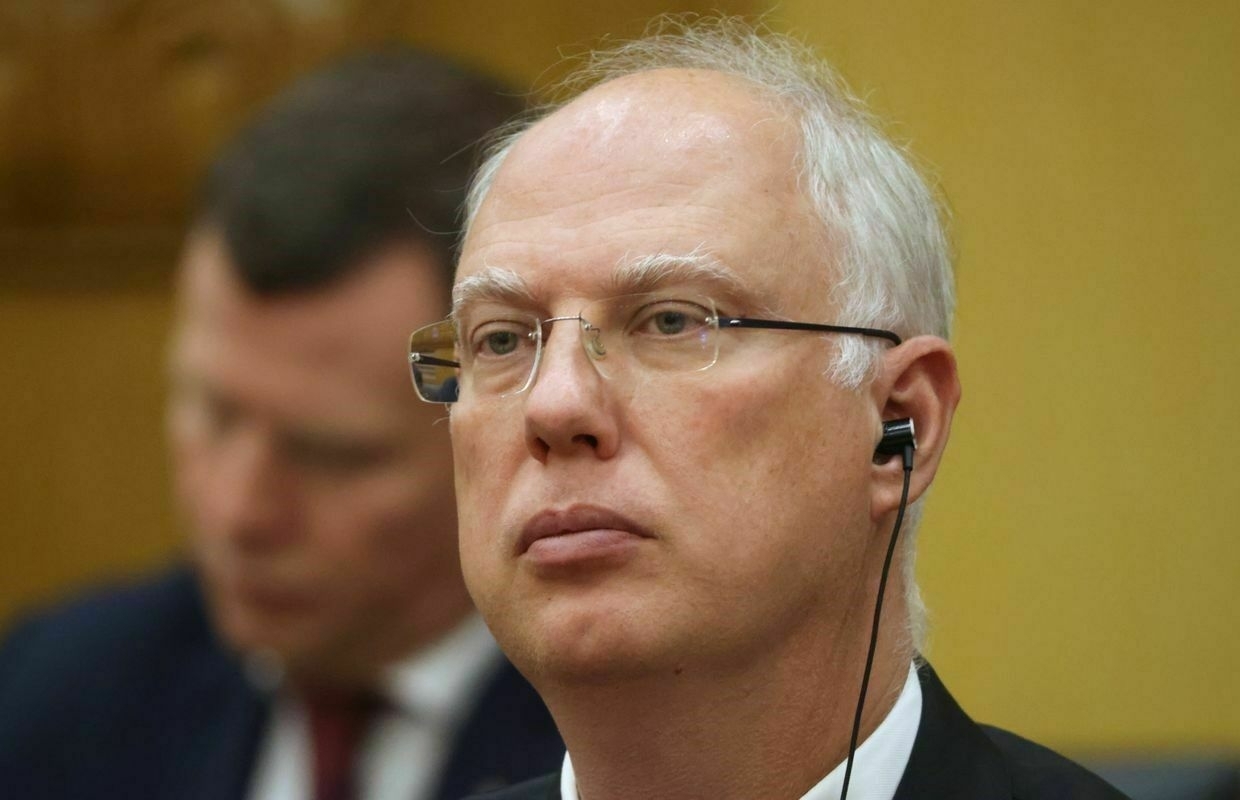
Moscow is using its negotiator, Kirill Dmitriev, to lead discussions with the U.S. on resource development and a partial unblocking of frozen Russian assets, President Volodymyr Zelensky told journalists on April 9.
Dmitriev, who heads the state-controlled Russian Direct Investment Fund, met with U.S. officials in Washington on behalf of Russian President Vladimir Putin last week. Ahead of the trip, the Russian official said that Washington and Moscow have begun discussions on projects related to Russian rare earth minerals.
Dmitriev is communicating Moscow’s proposals to Washington, using his Middle Eastern connections, Zelensky said. The Russian envoy previously played a role in backchannel diplomacy between Moscow and Trump when the latter was first elected in 2016.
“The scheme looks like it all leads to the unblocking of economic relations. They (Russia) want, for example, the lifting of sanctions against specific people who will be behind this or that direction, for example, Russian minerals, which they will offer them (the U.S.),” Zelensky said.
The Ukrainian president’s sanctions commissioner, Vladyslav Vlasiuk, said in late February that Russia is most interested in removing sanctions against Russian oligarchs and energy exports.
Western nations froze some 300 billion euros (around $300 billion) in Russian assets after Moscow launched its full-scale invasion of Ukraine in February 2022, with roughly two-thirds held in Europe.
According to Zelensky, Russia cannot fully unfreeze all its assets in the EU, but it could manage to release smaller sums between 2 and 5 billion euros ($2.2-$5.5 billion) through intermediaries among Middle Eastern leaders.
Previously, the president said that Moscow is pressuring foreign governments to help release the funds by offering deals involving high-tech goods such as aircraft construction parts.
The EU has already begun leveraging proceeds from frozen Russian assets to support Ukraine. Earlier on April 9, the bloc allocated another financial assistance tranche of 1 billion euros ($1.1 billion) as part of the G7 loan program for Kyiv.
Trump didn’t impose tariffs on Russia but they might be wrecking its economy regardlessU.S. President Donald Trump has inadvertently hit Russia’s economy after his “Liberation Day” tariffs caused oil prices to drop drastically on April 7, with potentially massive ramifications for the Kremlin’s ability to fund its ongoing war in Ukraine. Russia has so far failed to agree to a fullThe Kyiv IndependentDominic Culverwell
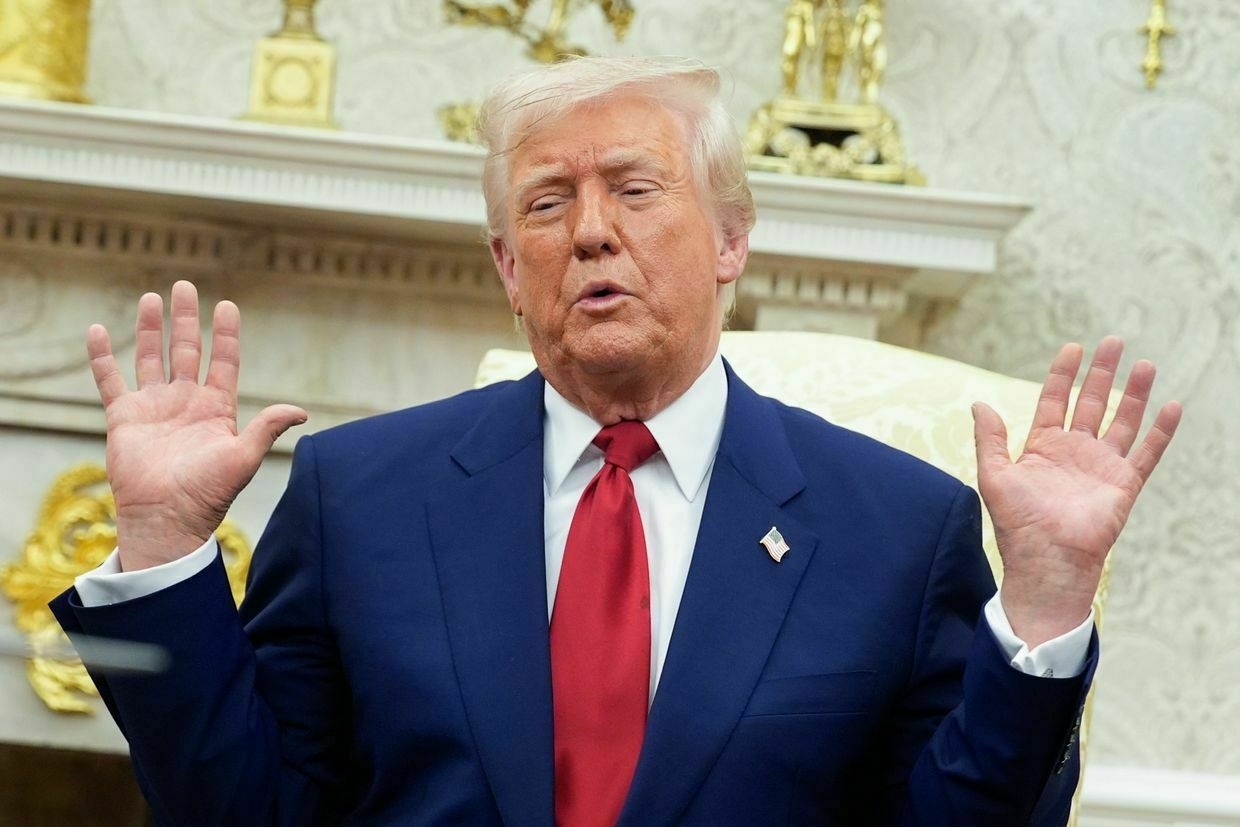
Ukraine war latest: Russia's spring offensive 'already begun;' over 160 Chinese nationals fight against Ukraine
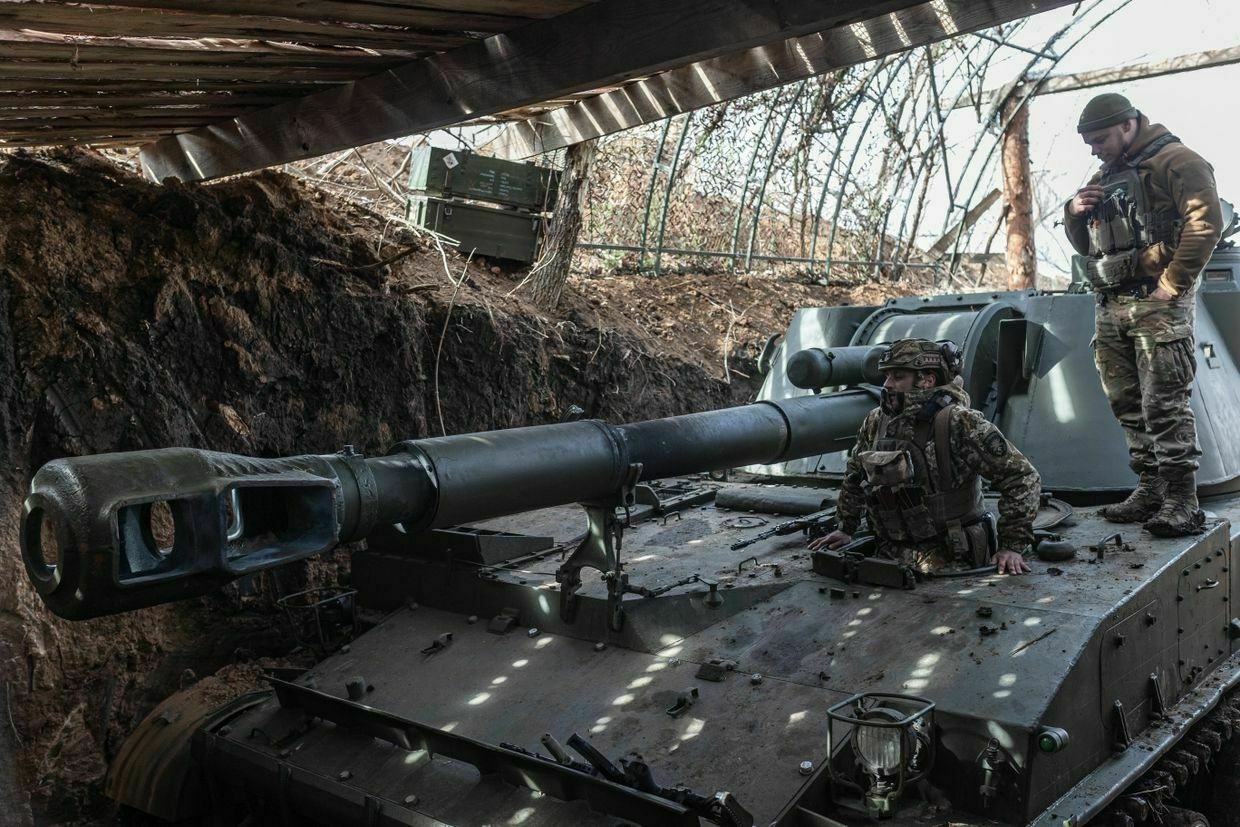
Key developments on April 9:
- Over 160 Chinese nationals fight for Russia in Ukraine, obtained documents show
- Russia’s spring offensive has “effectively already begun,” Syrskyi says
- Ukraine open to buy US military aid package for $50 billion, Zelensky says
- Russian military airfield reportedly targeted in mass drone attack
At least 163 Chinese nationals are serving in Russia’s Armed Forces as of early April, according to a Ukrainian intelligence document seen by the Kyiv Independent on April 9.
Another document showed photos and passport details of 13 Chinese recruits who were being selected for service in the Russian army as of April 2.
“There are 155 Chinese citizens who are fighting against Ukrainians on the territory of Ukraine,” President Volodymyr Zelensky confirmed this information to journalists on April 9.
“We are collecting information, we believe that there are many more."
The documents, obtained by the Kyiv Independent, list the names, personal data, place of service and position in the Russian army of other Chinese nationals.
The captured Chinese soldiers have been identified as Wang Guangjun and Zhang Renbo, born in 1991 and 1998, respectively, a source told the Kyiv Independent.
Guangjun was captured near Bilohorivka in Luhansk Oblast, while Renbo was captured near Tarasivka, further south.
One of the captured soldiers claimed he paid 300,000 rubles (roughly $3,000) to a middleman in China to join the Russian military in exchange for the promise of citizenship, Ukraine’s Luhansk military unit press service told Ukrainian Pravda earlier in the day.
“Beijing knows about this. Russians distribute advertising videos about recruitment through Chinese social networks,” Zelensky said.
“We record that these are Chinese citizens, they are fighting against us, using weapons against Ukrainians on the territory of Ukraine,” the president said.
Beijing responded by saying it was “verifying” the claims, reiterating that Chinese citizens are prohibited from participating in foreign armed conflicts.
The U.S. State Department called the incident “disturbing,” adding that it is closely monitoring the situation. “We’re aware of those reports,” spokesperson Tammy Bruce said on April 8.
Trump didn’t impose tariffs on Russia but they might be wrecking its economy regardlessU.S. President Donald Trump has inadvertently hit Russia’s economy after his “Liberation Day” tariffs caused oil prices to drop drastically on April 7, with potentially massive ramifications for the Kremlin’s ability to fund its ongoing war in Ukraine. Russia has so far failed to agree to a fullThe Kyiv IndependentDominic Culverwell
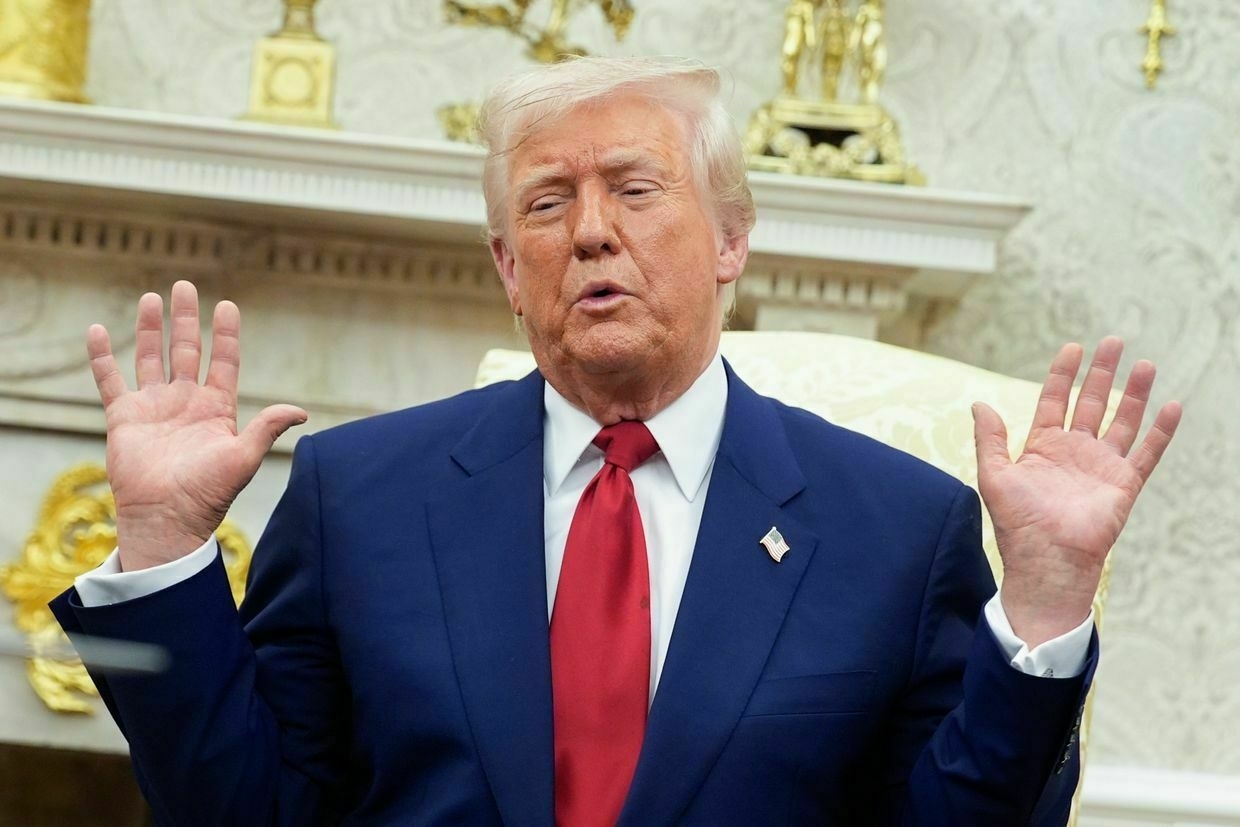
Russia’s spring offensive has “effectively already begun,” Syrskyi saysRussia’s new spring offensive against northeastern Ukraine “has actually already begun,” Commander-in-Chief Oleksandr Syrskyi said in an interview with the LB.UA outlet published on April 9.
Syrskyi’s comments come after President Volodymyr Zelensky warned that Moscow is amassing forces for a fresh offensive against the Kharkiv and Sumy oblasts this spring.
“I can say that the president is absolutely right, and this offensive has effectively already begun,” Syrskyi said.
For nearly a week, Russian offensive operations have almost doubled in all main sectors, the commander-in-chief noted.
Ukrainian long-range strikes cut Russia’s shell fire rate by nearly half, Syrskyi saysRussian soldiers used to fire around 40,000 rounds of ammunition daily, but a series of long-range attacks reduced this number to around 23,000, Commander-in-Chief Oleksandr Syrskyi said.The Kyiv IndependentKateryna Denisova
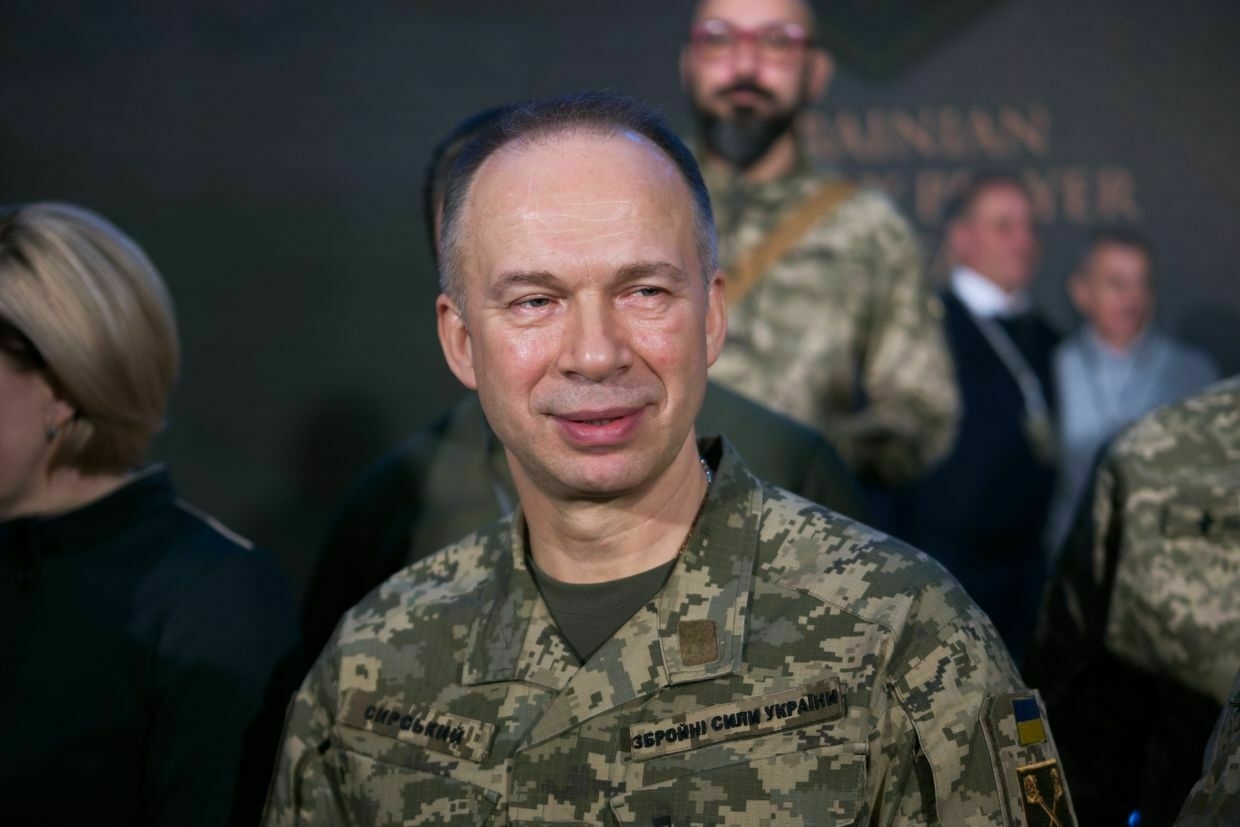
Ukraine open to buy US military aid package for $50 billion, Zelensky saysUkraine is ready to pay up to $50 billion for a future military aid package from the U.S., President Volodymyr Zelensky told journalists on April 9.
According to Zelensky, the funds allocated to help Ukraine under the Biden administration have not yet been exhausted, but Kyiv wants an additional package from the Trump administration.
“We handed over to the American side a large package that we want to buy. To buy in one form or another,” the president said.
“Many different formats and tools that we are ready for. We were ready to find both $30 billion and $50 billion for a suitable package."
Ukraine sees the purchase of the aid package that would include air defense systems and other much needed arms as a potential security guarantee from Washington.
“There is an agreement, we are giving money. Accordingly, (if) you want (we can pay) either to this (Reconstruction Investment) Fund, or to you (the U.S.) directly. It makes no difference to us,” Zelensky said.
U.S. military assistance to Kyiv has decreased, with European countries now providing the main portion of aid, according to Commander-in-Chief Oleksandr Syrskyi.
Zelensky: Ukraine ready for minerals deal with US, but only on equal termsThe president stressed that Ukraine is ready to contribute its land and resources, but expects the U.S. to bring in technologies and capital.The Kyiv IndependentAnna Fratsyvir
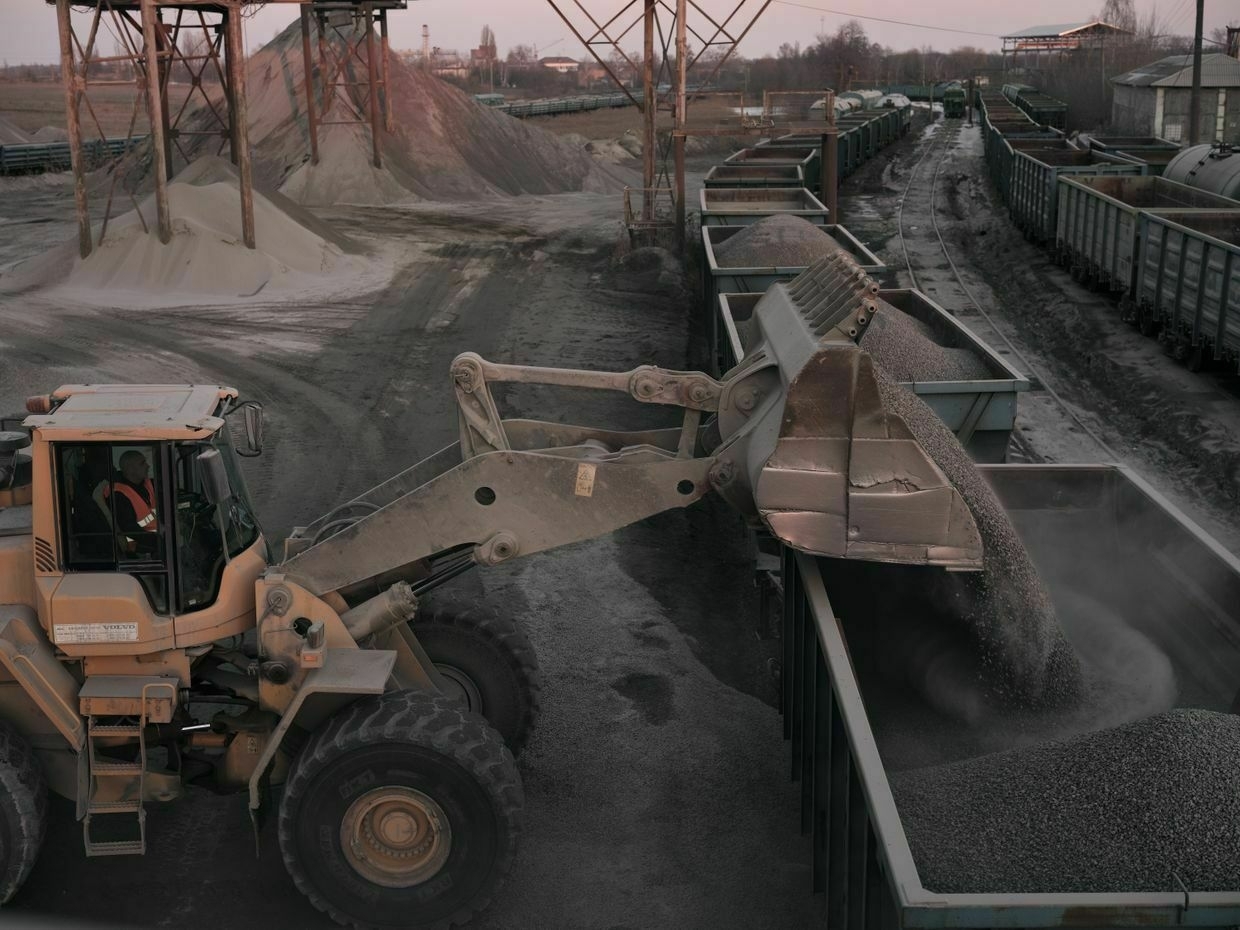
Russian military airfield reportedly targeted in mass drone attackRussian air defense intercepted 158 Ukrainian drones across occupied Crimea and several Russian regions overnight on April 9, including as far south as North Ossetia, Russia’s Defense Ministry claimed.
Russian Telegram channel Astra reported that drones targeted the military airfield in Mozdok, from where MiG-31K carriers of Kinzhal hypersonic missiles are deployed.
Social media posts showed images of smoke rising near the area. Astra said it geolocated one image to a site roughly 6 kilometers (3.7 miles) from the air base.
Russian authorities did not acknowledge any strike on the Mozdok airfield itself. Regional head Sergey Menyaylo said air defenses “repelled” the attack in the Mozdok district.
Menyaylo claimed there were no casualties or visible damage but confirmed that a drone attack alert had been implemented.
The Kyiv Independent could not verify all the claims. The Ukrainian military has yet to comment on the attacks.
Explosions were also reported in Taganrog in Rostov Oblast, Tikhoretsk, Sloviansk-on-Kuban, Krymsk, Saratov, and Engels, according to the Russian media and local authorities.
The airports of Vladikavkaz and Grozny, the capitals of Russia’s republics of North Ossetia and Chechnya, were reportedly closed because of the attack.
North Ossetia is located roughly 1,000 kilometers (600 miles) from Ukraine’s border. It borders Georgia to the south and lies along the Caucasus Mountains.
Note from the author:
Ukraine War Latest is put together by the Kyiv Independent news desk team, who keep you informed 24 hours a day, seven days a week. If you value our work and want to ensure we have the resources to continue, join the Kyiv Independent community.
Trump halts tariffs for 90 days on most countries, raises them for China
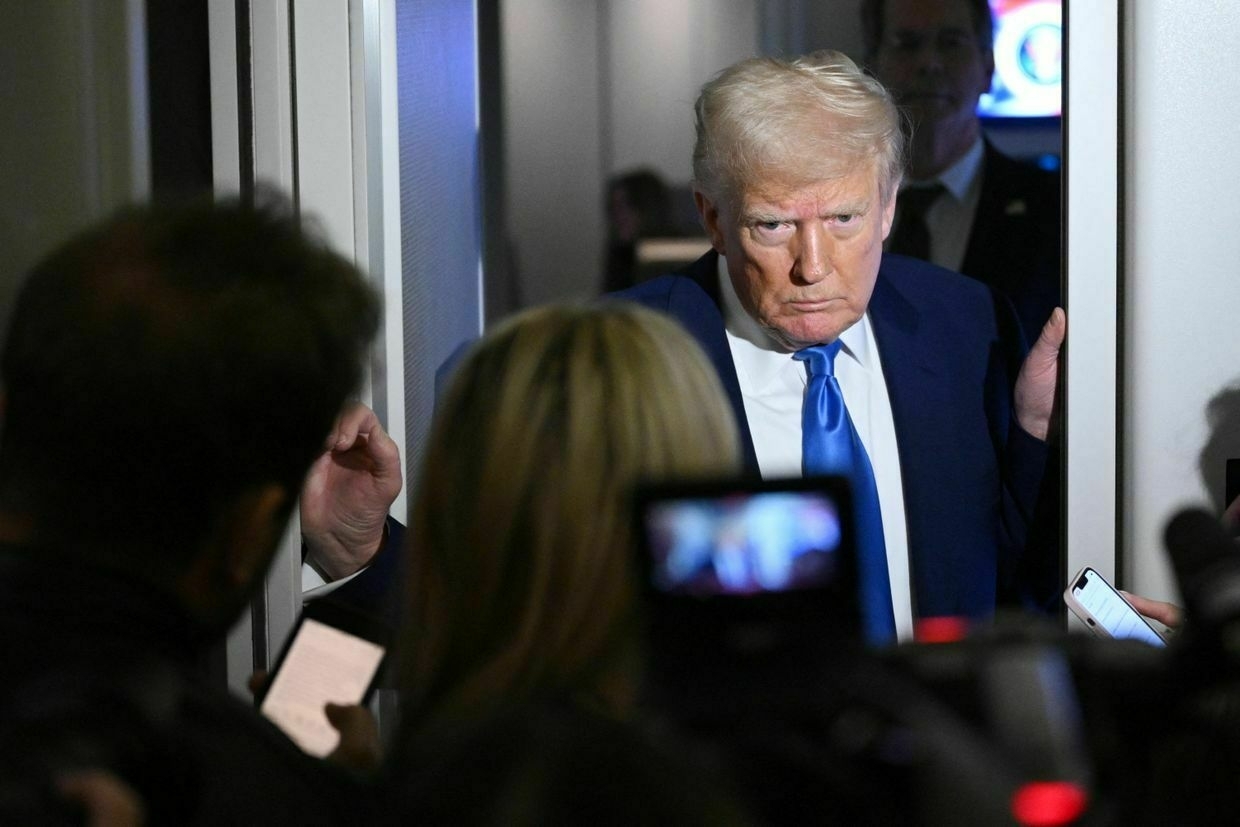
U.S. President Donald Trump raised tariffs on China to 125% but authorized a 90-day tariff pause on other countries effective immediately, he said on Truth Social on April 9.
The move came a day after Trump raised tariffs on China from 54% to 104%. In turn, Beijing slapped 84% tariffs on U.S. goods on April 9.
Trump’s new tariff policy, announced as part of what he called “Liberation Day,” imposed duties on nearly every major U.S. trading partner, including Ukraine. Kyiv was hit with a 10% tariff, compared to 20% on the EU.
Russia, Belarus, North Korea, and Cuba were notably not included.
The U.S. president said that the tariff hike for China is “based on the lack of respect shown to the world’s markets."
“At some point, hopefully in the near future, China will realize that the days of ripping off the U.S.A., and other countries, is no longer sustainable or acceptable,” he added.
According to Trump, more than 75 countries have approached the U.S. to discuss trade, trade barriers and tariffs and have not retaliated against Washington.
“I have authorized a 90-day pause, and a substantially lowered reciprocal tariff during this period, of 10%, also effective immediately,” he wrote.
Earlier in the day, EU member states backed the introduction of trade countermeasures against the U.S. on April 9 in response to Washington’s recent 25% tariffs on imports of steel and aluminum.
Ukraine was hit with a 10% blanket tariff on its exports, a setback for a country at war.
Kyiv’s metallurgy sector, a major source of Ukrainian exports to the U.S., was already impacted by a 25% tariff imposed in March.
In 2023, Ukrainian exports to the U.S. totaled just $874 million, while imports from the U.S. reached $3.4 billion. The overall trade volume has declined in recent years, but the tariffs could deepen the imbalance, especially if they trigger broader protectionist measures globally.
Trump didn’t impose tariffs on Russia but they might be wrecking its economy regardlessU.S. President Donald Trump has inadvertently hit Russia’s economy after his “Liberation Day” tariffs caused oil prices to drop drastically on April 7, with potentially massive ramifications for the Kremlin’s ability to fund its ongoing war in Ukraine. Russia has so far failed to agree to a fullThe Kyiv IndependentDominic Culverwell
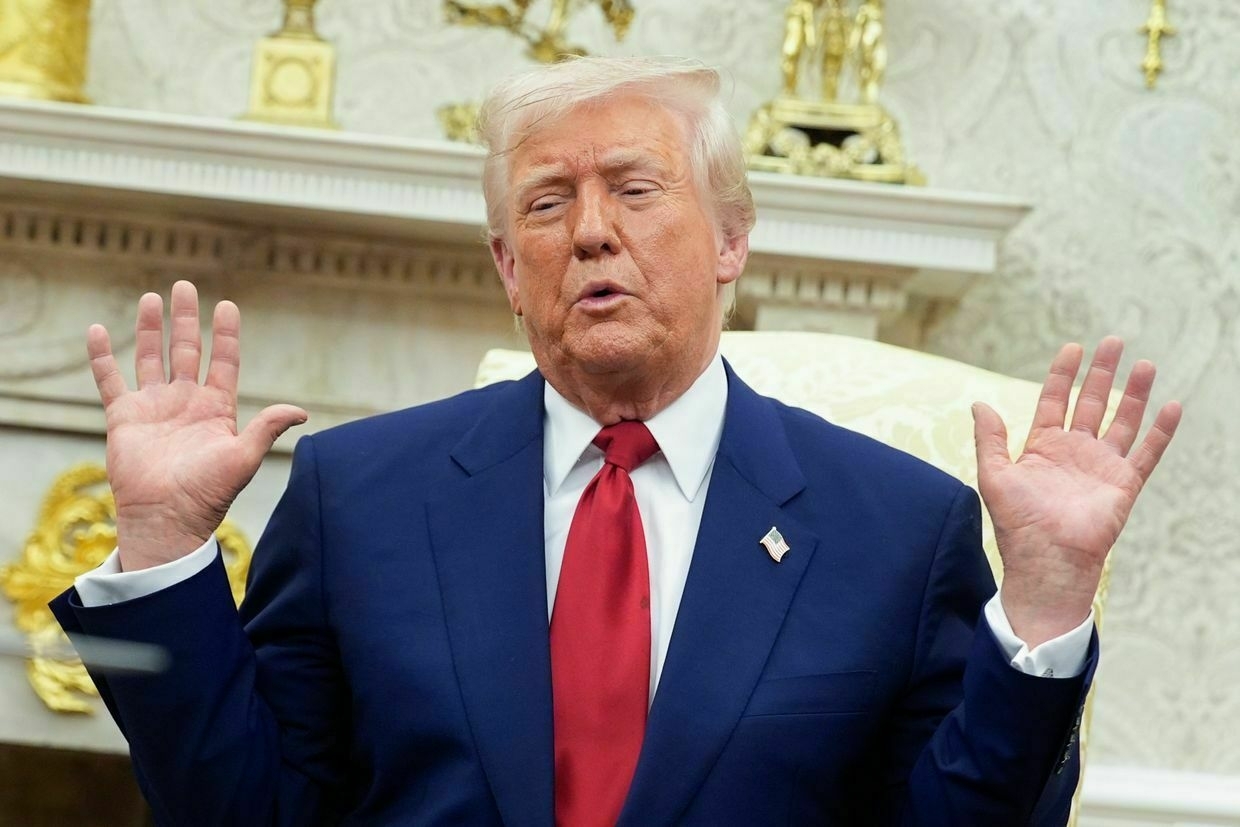
Zelensky: Ukraine ready for minerals deal with US, but only on equal terms
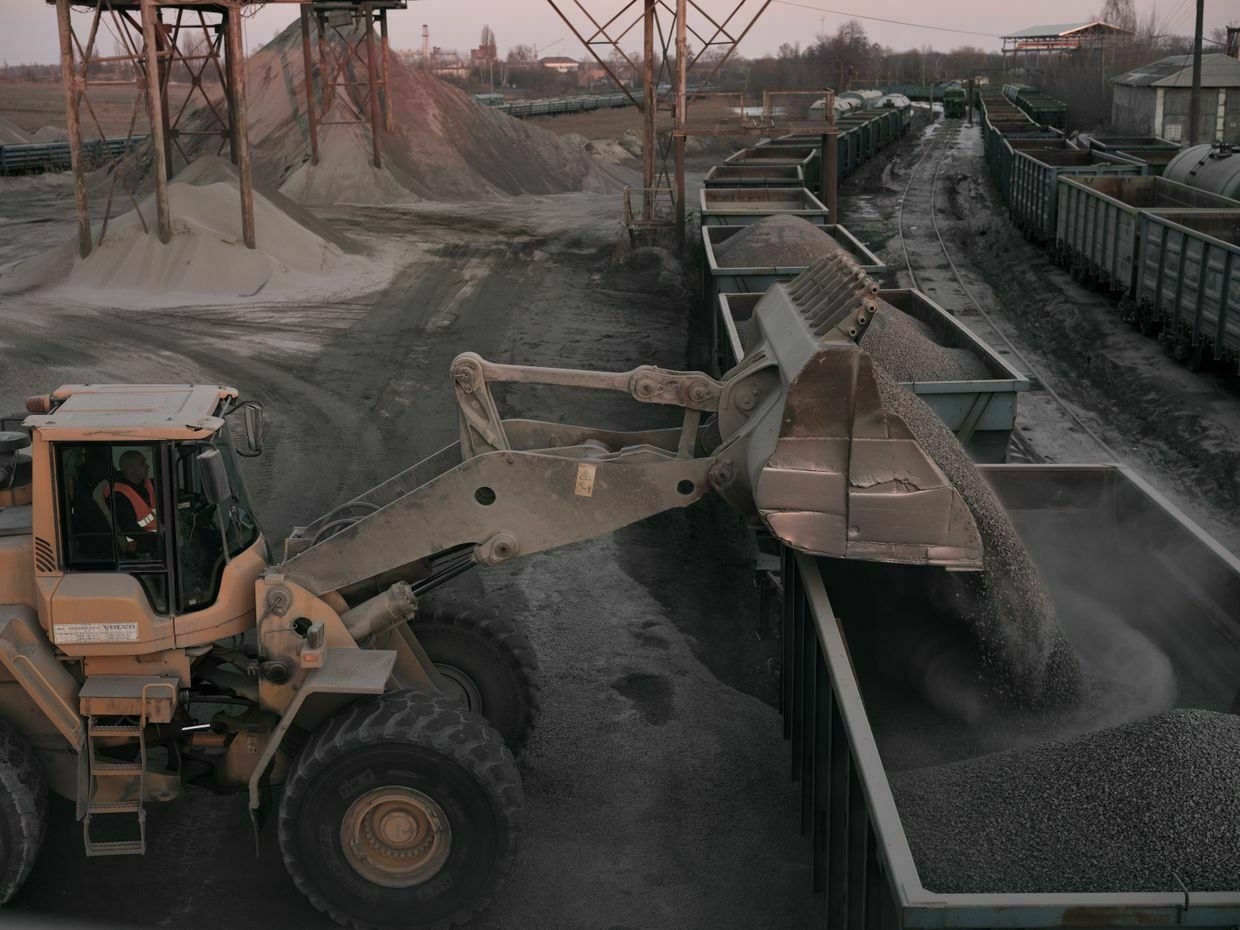
Ukraine is open to signing a minerals deal with the United States, but only if it ensures equal partnership and respects Ukrainian sovereignty, President Volodymyr Zelensky told journalists on April 9.
Zelensky said the Ukrainian government welcomes investment and cooperation in the country’s mineral sector, but not at any cost.
“If this is about true partnership, then we need to talk about parity. It must be 50/50,” Zelenskyy said, emphasizing this is one of the conditions that will be presented by the Ukrainian technical team during negotiations.
According to Zelensky, a prospective agreement could help modernize Ukraine’s economy, rebuild the country after the war, and create jobs through joint ventures involving high-tech American companies.
The president stressed that Ukraine is ready to contribute its land and resources, but expects the U.S. to bring in technologies and capital.
Zelensky also described an exchange with Treasury Secretary Scott Bessent, who had allegedly urged Kyiv to sign a preliminary deal immediately.
“I told him to stop tapping his finger on the contract and to speak concretely,” Zelenskyy said, adding that the proposal was not ready and some provisions contradicted Ukrainian law. “We need to create a successful story with our relations with the United States. We want to achieve success and security.”
Speaking at the EU-Ukraine Association Council press conference in Brussels, Prime Minister Denys Shmyhal confirmed that Ukraine is now in formal negotiations with the U.S.
Shmyhal highlighted that Ukraine has “clear red lines” that cannot be crossed. The first is adherence to the Ukrainian constitution, and second, the deal must align with Ukraine’s eurointegration and relevant obligations, as well as fully comply with international law.
“Ukraine is forming a special delegation on the technical level. We also cooperate with international law companies and will send our delegation to the United States at the end of this week,” the Prime Minister said.
The latest version of the Ukraine-U.S. minerals deal reportedly grants the United States extensive control over Ukraine’s natural resources through a joint investment fund. The agreement has been framed by the Trump administration as vital to Ukraine’s path to peace, yet it offers no specific security commitments in return for access to strategic resources.
A framework version of the agreement was scheduled to be signed during Zelensky’s visit to Washington on February 28. Ukraine’s Cabinet approved the draft and designated either First Deputy Prime Minister Yuliia Svyrydenko or Foreign Minister Andriy Sybiha as signatories.
However, the plan collapsed after a tense Oval Office dispute involving Zelensky, U.S. President Donald Trump, and Vice President JD Vance. Zelensky left the White House without signing the agreement.
‘It’s a trap’ — Trump’s US minerals deal threatens Ukraine’s EU membershipThe ongoing saga of the U.S.-Ukraine natural resources deal has already caused seismic ruptures between Kyiv and Washington, temporarily costing Ukraine American military support and crucial intelligence sharing. Yet in the quest to placate U.S. President Donald Trump, and secure his support in the…The Kyiv IndependentDominic Culverwell
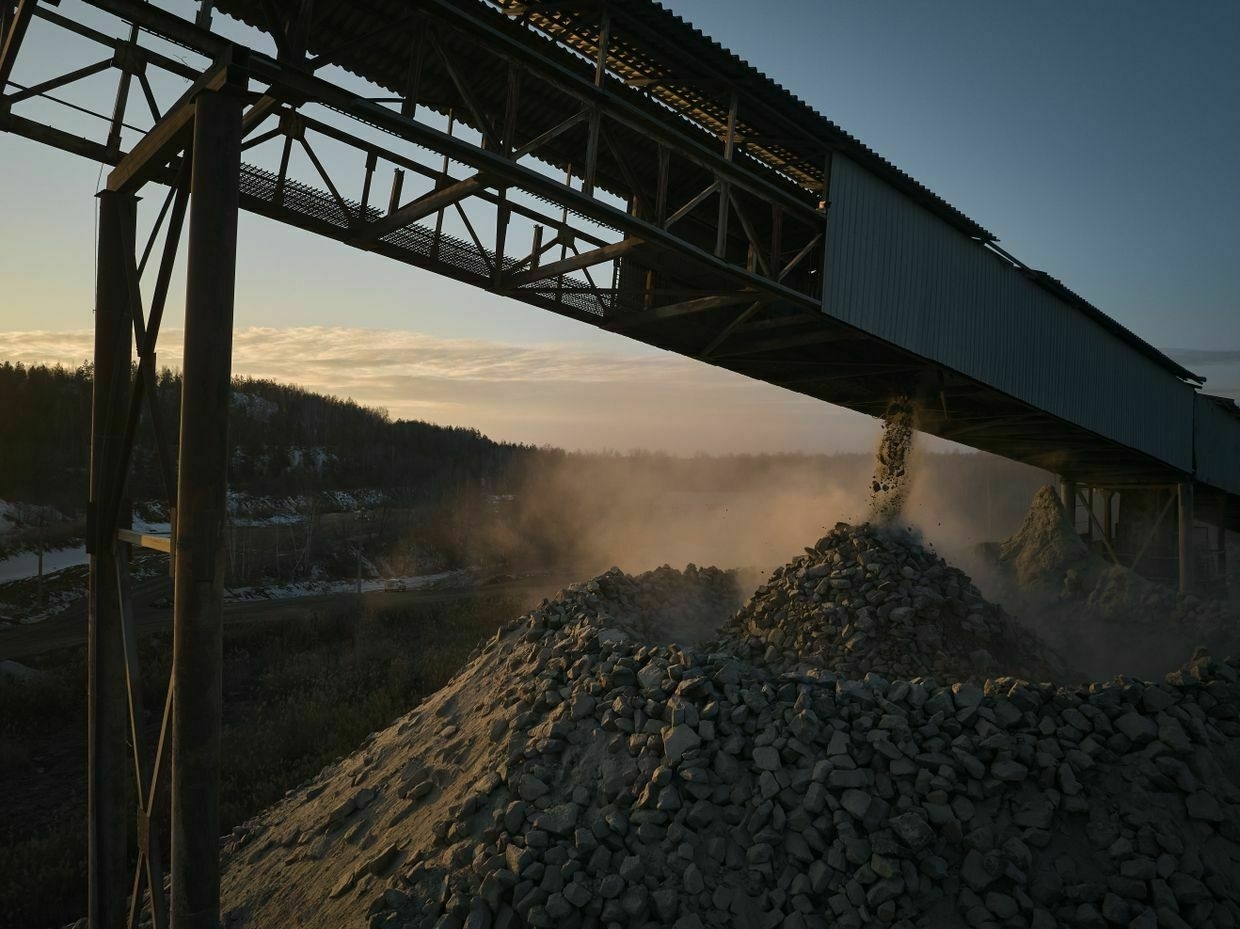
Ukraine open to buy US military aid package for $50 billion, Zelensky says
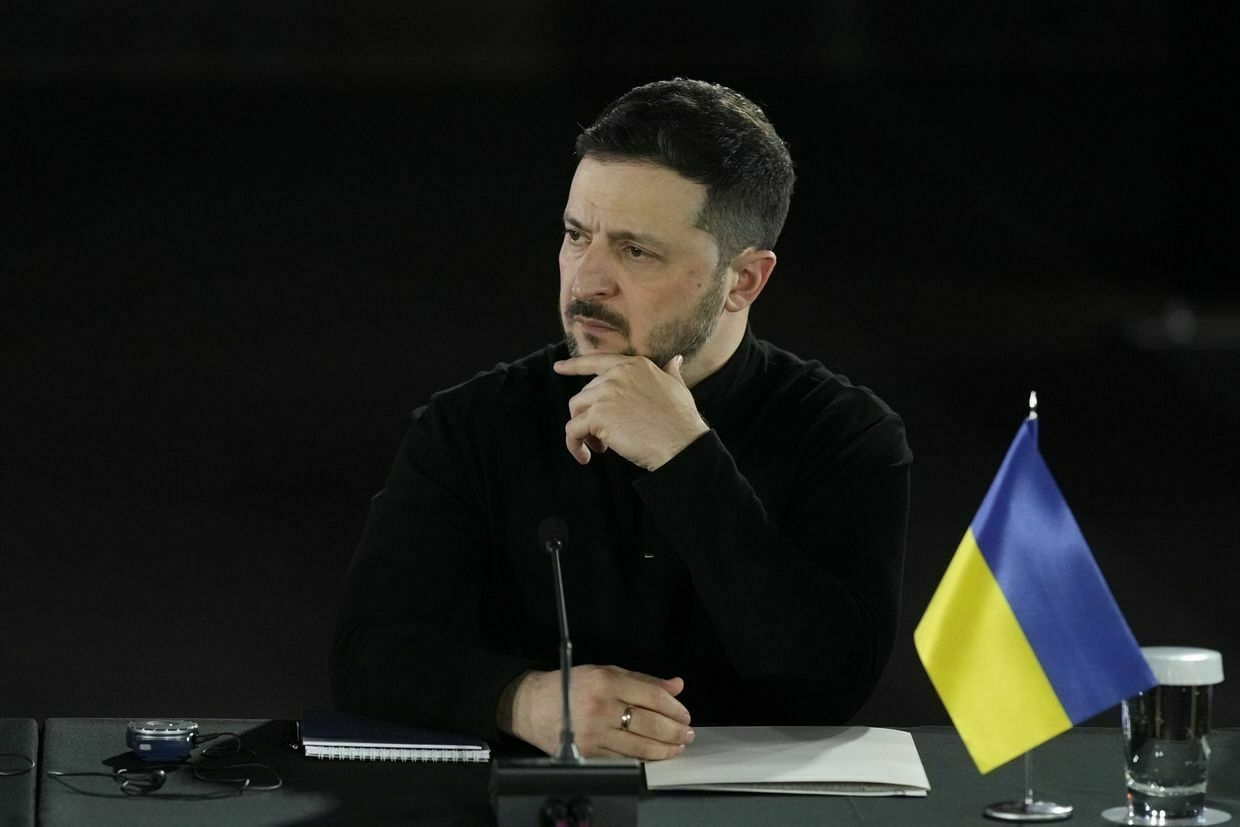
Ukraine is ready to pay up to $50 billion for a future military aid package from the U.S., President Volodymyr Zelensky told journalists on April 9.
Zelensky’s statement came as future U.S. aid to Kyiv remains uncertain amid President Donald Trump’s major shift in the country’s policy on the Russia-Ukraine war.
Trump has permitted the continued flow of assistance approved by former U.S. President Joe Biden – except for a brief halt on all military aid in March – but has yet to sign off on any new packages.
According to Zelensky, the funds allocated to help Ukraine under the Biden administration have not yet been exhausted, but Kyiv wants an additional package from the Trump administration.
“We handed over to the American side a large package that we want to buy. To buy in one form or another,” the president said.
“Many different formats and tools that we are ready for. We were ready to find both $30 billion and $50 billion for a suitable package."
Ukraine sees the purchase of the aid package that would include air defense systems and other much needed arms as a potential security guarantee from Washington.
“There is an agreement, we are giving money. Accordingly, (if) you want (we can pay) either to this (Reconstruction Investment) Fund, or to you (the U.S.) directly. It makes no difference to us,” Zelensky said.
U.S. military assistance to Kyiv has decreased, with European countries now providing the main portion of aid, according to Commander-in-Chief Oleksandr Syrskyi.
Washington has been Kyiv’s leading military donor throughout the full-scale war. According to the Kiel Institute for the World Economy, the U.S. has provided $119.8 billion in aid to Ukraine since the start of Russia’s full-scale invasion in 2022, including $67.1 billion in military aid, $49 billion in financial aid, and $3.6 billion in humanitarian support.
Following Zelensky’s heated meeting with Donald Trump in the Oval Office on Feb. 28, Washington briefly suspended all intelligence sharing as well existing military aid deliveries worth billions of dollars.
Trump didn’t impose tariffs on Russia but they might be wrecking its economy regardlessU.S. President Donald Trump has inadvertently hit Russia’s economy after his “Liberation Day” tariffs caused oil prices to drop drastically on April 7, with potentially massive ramifications for the Kremlin’s ability to fund its ongoing war in Ukraine. Russia has so far failed to agree to a fullThe Kyiv IndependentDominic Culverwell
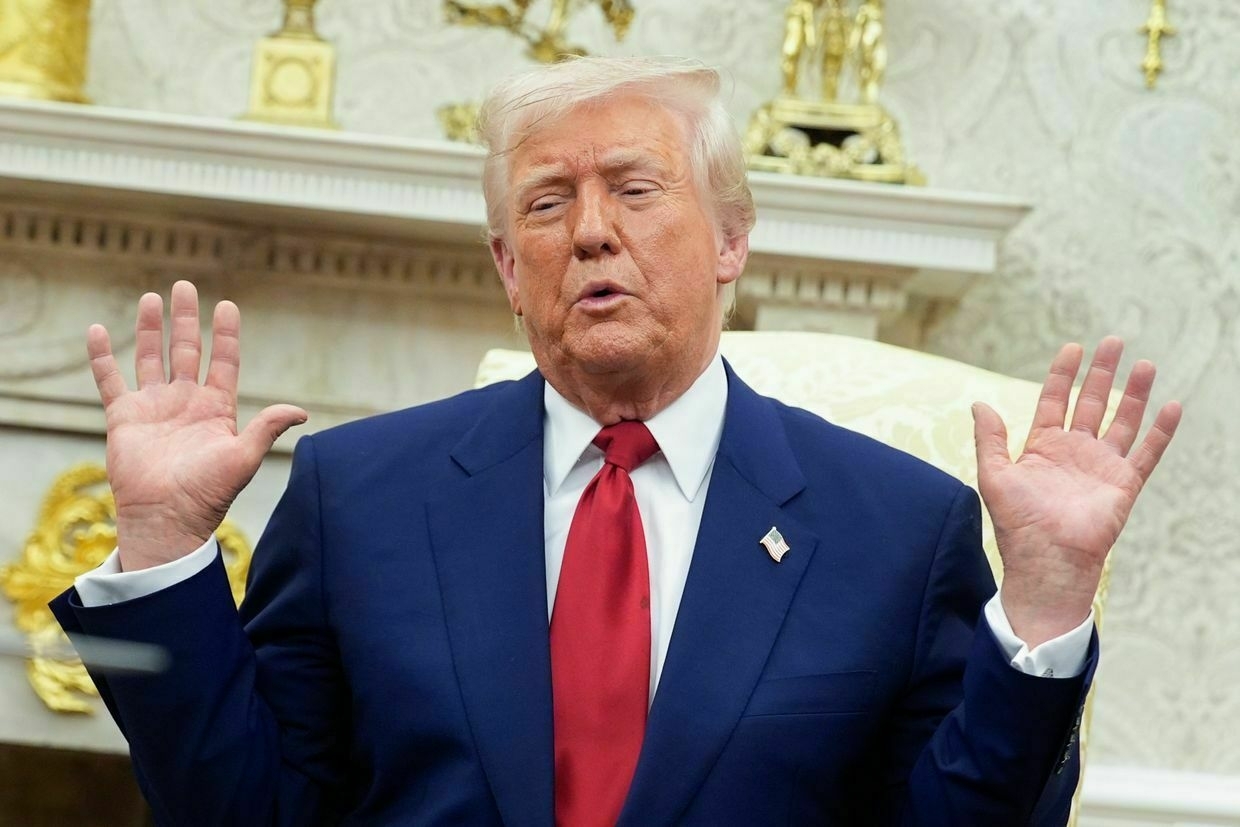
Inadvertently, Trump is killing russian economy but what about Europe? | Wrap-up
Over 160 Chinese nationals serve in Russian army, leaked documents allege
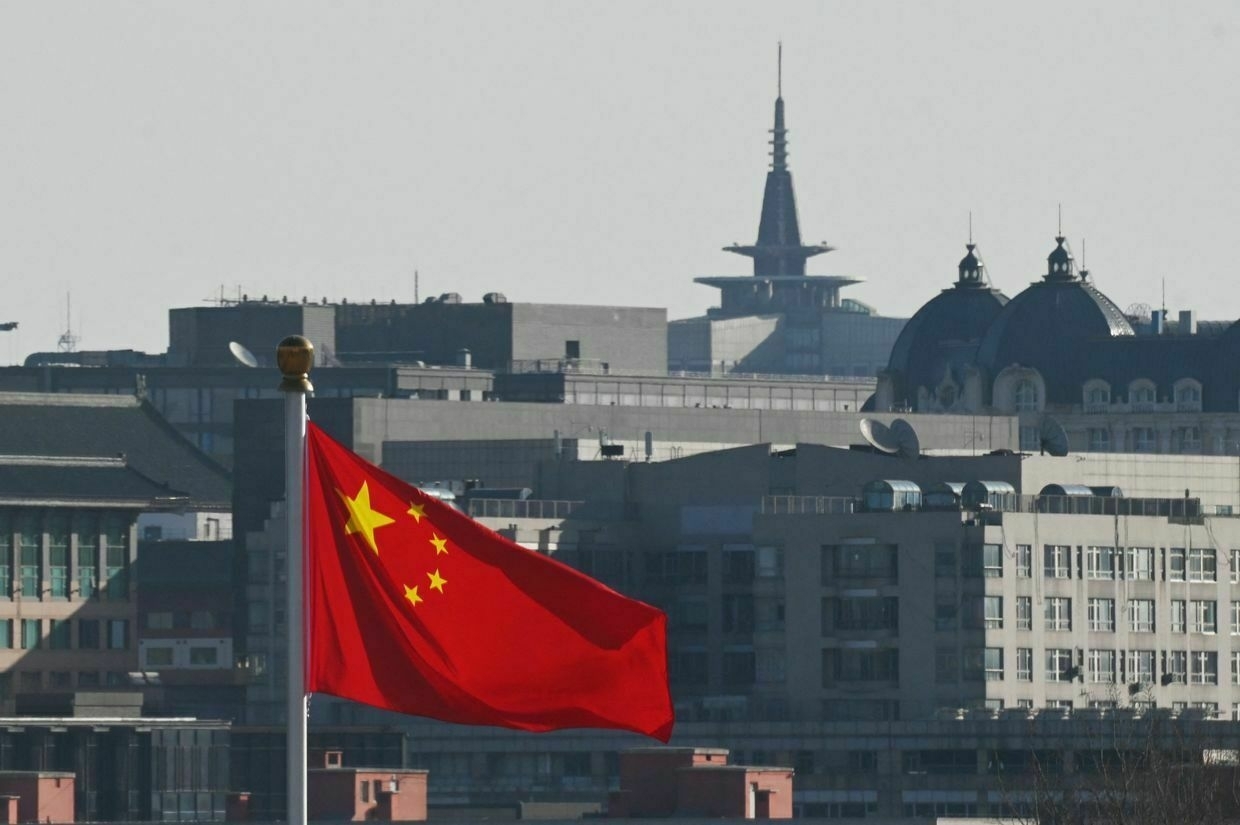
At least 163 Chinese nationals are serving in Russia’s Armed Forces as of early April, according to Ukrainian intelligence documents seen by the Kyiv Independent on April 9.
“There are 155 Chinese citizens who are fighting against Ukrainians on the territory of Ukraine,” President Volodymyr Zelensky told journalist on April 9.
“We are collecting information, we believe that there are many more."
“For these 155 there is passport data, where they are from, their Chinese documents, age, etc,” Zelensky added.
According to Zelensky, Chinese soldiers had been serving with Russia’s 70th Separate Guards Motor Rifle Brigade, the 255th Rifle Division, and others.
A day before, President Volodymyr Zelensky announced the capture of two Chinese citizens fighting for Russia in eastern Donetsk Oblast. The group of six Chinese nationals clashed with Ukrainian forces and two are now being held by the Security Service of Ukraine (SBU), he said.
The documents, obtained by the Kyiv Independent, list the names, personal data, place of service and position in the Russian army of other Chinese nationals. The materials also include photos of some of them.
The captured Chinese soldiers have been identified as Wang Guangjun and Zhang Renbo born in 1991 and 1998 respectively, a source told the Kyiv Independent.
One of them claimed he paid 300,000 rubles (roughly $3,000) to a middleman in China to join the Russian military in exchange for the promise of citizenship, Ukraine’s Luhansk military unit press service told Ukrainian Pravda earlier in the day.
“Beijing knows about this. Russians distribute advertising videos about recruitment through Chinese social networks,” Zelensky said.
Following the capture, Zelensky instructed Foreign Minister Andrii Sybiha to contact Beijing. Ukraine summoned China’s chargé d’affaires to demand an official explanation and express condemnation.
Beijing responded by saying it was “verifying” the claims, reiterating that Chinese citizens are prohibited from participating in foreign armed conflicts.
Zelensky said the apparent presence of Chinese nationals in the ranks of the Russian military is further proof that Moscow is not seeking peace and continues to draw support from countries like China, Iran, and North Korea.
The U.S. State Department called the incident “disturbing,” adding that it is closely monitoring the situation. “We’re aware of those reports,” spokesperson Tammy Bruce said on April 8.
China, which portrays itself as a neutral party in the war, has become the Kremlin’s largest supplier of dual-use goods essential for weapons manufacturing.
Unlike North Korean troops, who have fought on Russian soil, the Chinese nationals were captured on Ukrainian territory, marking a potential escalation in foreign involvement.
North Korea sent around 12,000 troops to Russia’s Kursk Oblast in 2024 to reinforce Russian lines after a Ukrainian cross-border offensive. Kyiv has said it captured two North Korean soldiers in January, estimating 4,000 casualties among the deployed units.
Trump didn’t impose tariffs on Russia but they might be wrecking its economy regardlessU.S. President Donald Trump has inadvertently hit Russia’s economy after his “Liberation Day” tariffs caused oil prices to drop drastically on April 7, with potentially massive ramifications for the Kremlin’s ability to fund its ongoing war in Ukraine. Russia has so far failed to agree to a fullThe Kyiv IndependentDominic Culverwell
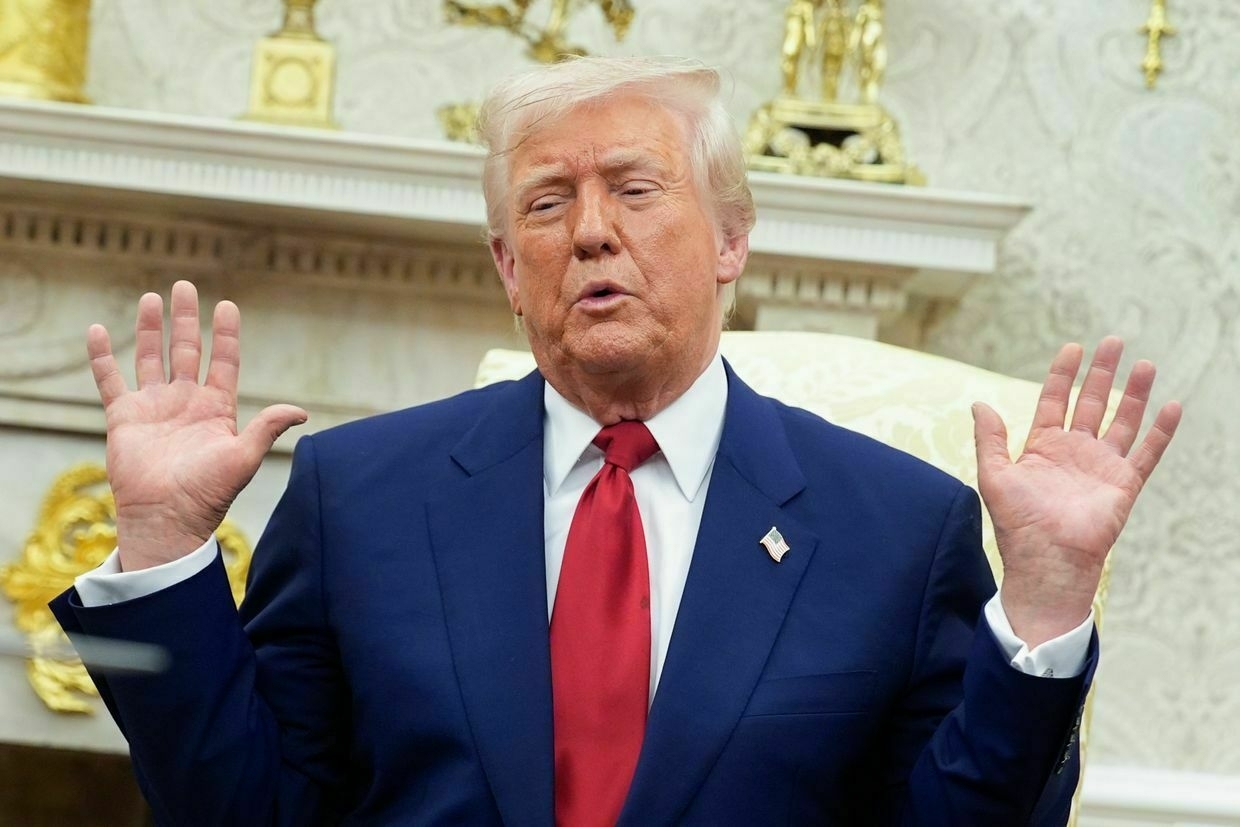
EU set to greenlight first response to US tariffs
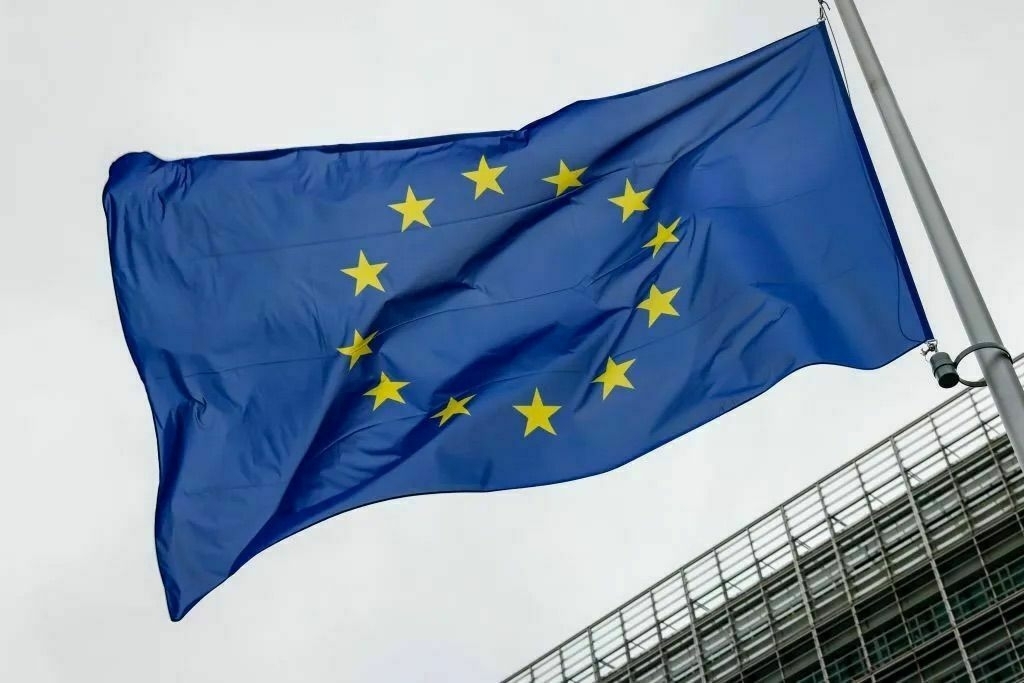
EU member states backed the introduction of trade countermeasures against the U.S. on April 9 in response to Washington’s recent tariffs on imports of steel and aluminum, the European Commission announced.
In mid-March, U.S. President Donald Trump’s decided to impose 25% tariffs on imported steel and aluminum, reigniting trade tensions between Washington and Brussels.
“The EU considers U.S. tariffs unjustified and damaging, causing economic harm to both sides, as well as the global economy,” the statement read.
The bloc has greenlighted tariffs on around 21 billion euros ($23.2 billion) worth of U.S. goods, Bloomberg reported. They will reportedly target soybeans, diamonds, agricultural products, and motorcycles, primarily from Republican-leaning states.
Some of the EU tariffs will start to be levied on April 15.
The European Commission said the countermeasures can be halted “at any time” if the U.S. agrees to a “fair and balanced” negotiated outcome.
Trump’s new tariff policy, announced as part of what he called “Liberation Day,” imposed duties on nearly every major U.S. trading partner, including Ukraine. Kyiv was hit with a 10% tariff, compared to 20% on the EU and 104% on China.
Russia, Belarus, North Korea, and Cuba were notably not included.
Trump didn’t impose tariffs on Russia but they might be wrecking its economy regardlessU.S. President Donald Trump has inadvertently hit Russia’s economy after his “Liberation Day” tariffs caused oil prices to drop drastically on April 7, with potentially massive ramifications for the Kremlin’s ability to fund its ongoing war in Ukraine. Russia has so far failed to agree to a fullThe Kyiv IndependentDominic Culverwell
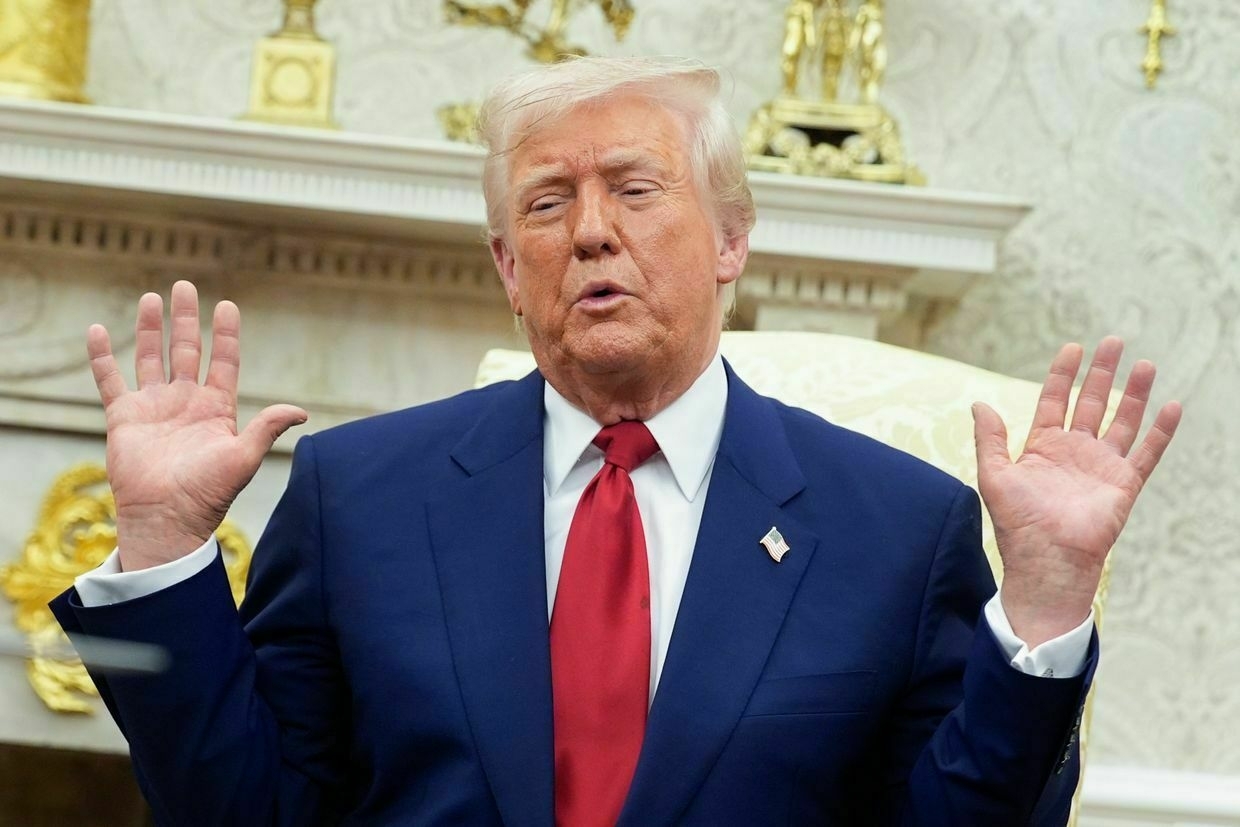
Can Ukrainian soldiers survive without Musk’s Starlink?
Editor’s Note: We go deep into the lives of those who have been most affected by this war.
We don’t just opine about the state of world affairs. We do thorough reporting, introducing you to the human stories of those living through global events – and teach you something new with every issue.
Don’t let our work go unnoticed. Upgrade today to support us!TOMORROW: Thursday at 7am Pacific, 10 am Eastern, 5pm Kyiv – watch Tim Mak and Alexander Vindman on our new show – catch it at Counteroffensive.News or the Substack app.
After a busy day at work as a software engineer, Oleg Kutkov returns to his apartment in Kyiv. He goes out to the balcony, but not to smoke or water the flowers.
Oleg’s balcony is a workshop. Here he repairs Starlink terminals damaged at the front, and sends them back to soldiers.
"At first, I used to work with Starlink as a hobby. But when I fix them now, I realize that it is not just a hobby, it is the main means of communication at the front,” Oleg said.
Hundreds of thousands of people in Ukraine (including The Counteroffensive’s Kyiv offices) depend on Starlink satellites, which have replaced internet networks that have been damaged during the war. Civilians in hospitals, schools, and frontline areas all rely on it – as does the military along the entire frontline.
But President Trump and Elon Musk see Starlink as a great way to put pressure on the Ukrainian government. Starlink is part of Musk’s SpaceX company, and although Ukraine and its partners pay for the operation of Starlink terminals, Musk can theoretically turn them off whenever he wants.
The centrality of Starlink to Ukrainian military success highlights just what an important geopolitical figure Musk has become, and how the world’s richest man has influence well beyond his net worth. In fact, the trajectory of the war is very much in the hands of one person.
Although Ukrainian soldiers realize that there are no alternatives to Starlink, they can fight without it – simply because Ukrainians have no choice. The solution may be to switch to more traditional means of communication, including radios and cell phone networks. It is also possible to partially switch to satellite communications from other companies. But the Starlink alternatives are less efficient, and will not be able to cover the entire front line.
Since childhood, Oleg Kutkov, who is now 36, has loved disassembling and reassembling various devices. So when he heard about the Starlink system in 2021, he knew it would interest him.
Oleg ordered his first terminal from the US at the end of 2021. Back then, Starlink connection was not yet available in Ukraine. Oleg was more interested in taking apart the satellite terminal and seeing how it worked inside.
Oleg’s was probably the first Starlink in Ukraine, he said.
A few months later, the full-scale invasion began. In late February 2022, Kyiv asked Elon Musk to provide Ukraine with Starlink access. This was necessary because Russia was attacking communication towers and disrupting access to traditional systems.
The billionaire can give, and he can take away – such is his hold over his company. A few hours later, Musk replied that Starlink communication was now active in Ukraine, and the first terminals were on en route.
Oleg saw Musk's tweet and decided to try to activate his terminal. His contacts at SpaceX helped him with this, and the terminal worked. He believes it was one of the first activations in the entire country.
“It allowed me to at least somehow stay in touch and get some news [When Oleg was in Kyiv at the beginning of the full-scale invasion]. Where there was no connection due to Russian attacks, it appeared thanks to Starlink,” Oleg said.
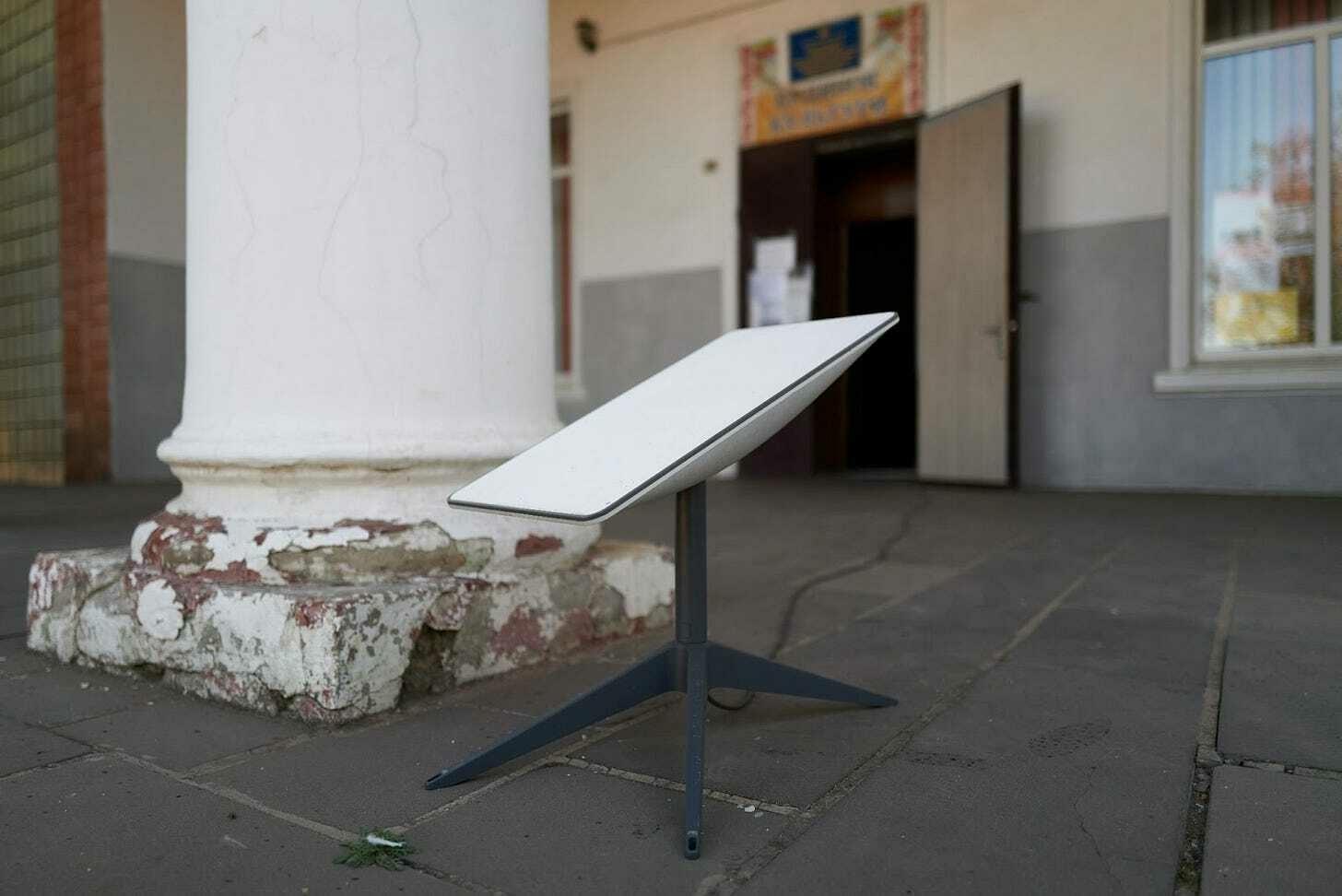
A Starlink dish establishes a satellite connection to provide internet to a humanitarian center on September 24, 2024 in Ivanopillya, Ukraine. Photo by Pierre Crom/Getty Images. Despite helping Ukraine at the start of the war, later, Musk began to undermine the operations of the Ukrainian military.
In September 2023, biographer Walter Isaacson claimed that Musk had secretly turned off Starlink access near the occupied Crimea the year before, to disrupt an attack on the Russian fleet. This information was also confirmed by Kyrylo Budanov, Ukraine’s military intelligence chief.
In February 2023, SpaceX restricted the use of Starlink in Ukraine, in particular restricting its ability to control drones in the region. Elon Musk said that his company did this “to prevent World War III.” The restrictions were eventually lifted.
New threats over shutting down the Starlink satellites emerged more recently when Trump returned as American president. Trump administration negotiators threatened to cut off Ukraine's access if it did not sign a minerals deal, Reuters reported.
The deal remains unsigned.
There was also a fight between Polish Foreign Minister Sikorski and Musk over the possible shutdown of Starlink. Although it ended with a tweet from Musk that he would never turn off access, there is doubt about whether his word alone can be trusted.
Ukraine is still vulnerable to the possibility that Starlink will be turned off and the army will be left without communication. So it has to look for alternative means of communication.
“I know that Starlink is not reliable, as SpaceX has shut it down several times. But currently, there are no full-fledged alternatives, all other options are worse,” said Oleg.
Using Starlink, the military can coordinate combat operations, transmit data from the front line, and quickly monitor the situation on the battlefield – even when there is mobile network coverage.
It can also control strikes and reconnaissance missions by drones.
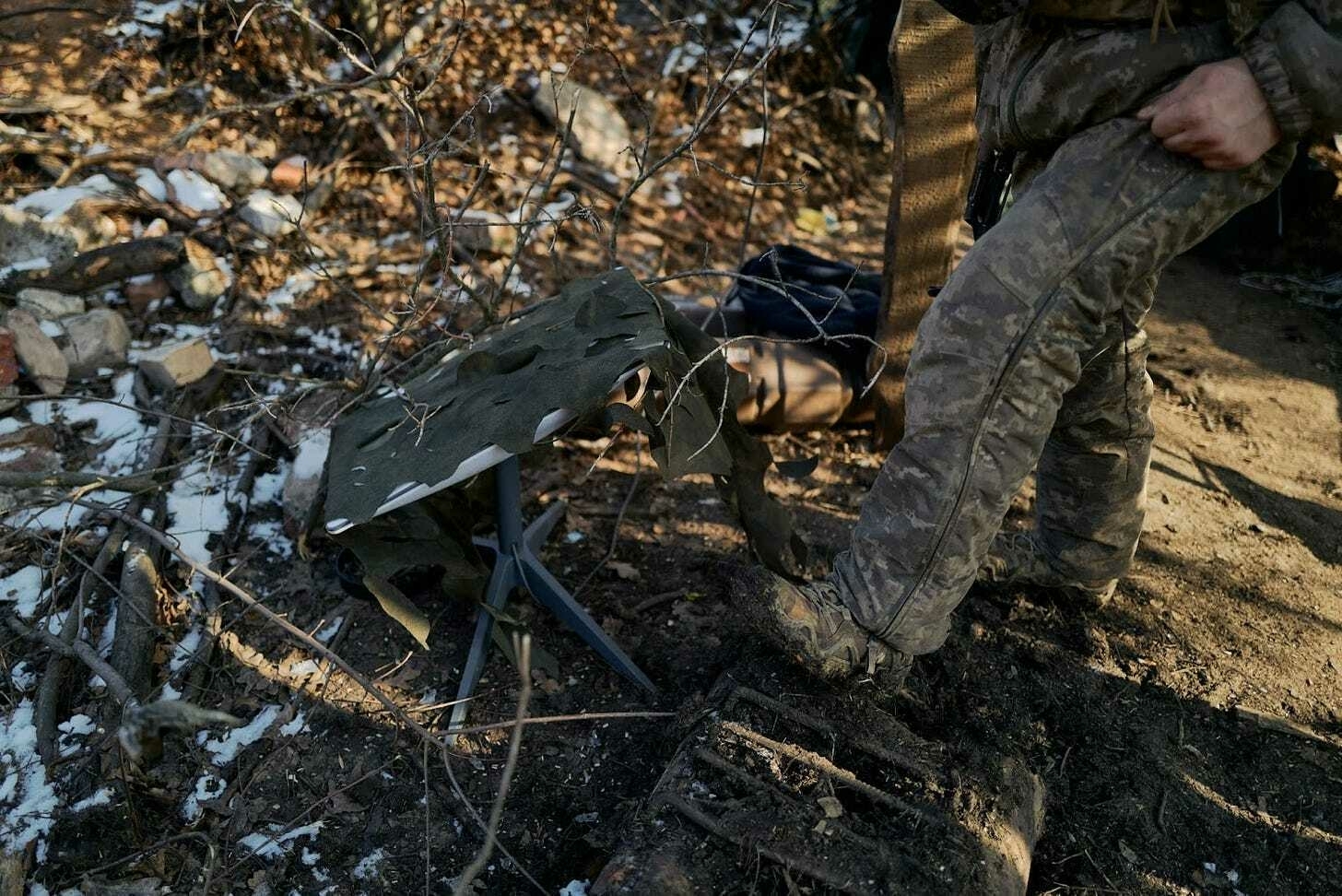
A Ukrainian soldier cleans his shoes near a Starlink device as servicemen of the 155th Brigade of the Armed Forces of Ukraine near Pokrovsk on February 9, 2025 in Pokrovsk, Ukraine. Photo by Pierre Crom/Getty Images. “Communication [provided by Starlink] is the basis of command and control. If there is communication, then there is control, and then we can talk about offense, defense, and everything else,” said Yaroslav Honchar, who heads the NGO Aerorozvidka, which promotes the introduction of robotic military capabilities.
Although Starlink is not officially available to the Russian army, it has been reported that some Russians have used it anyway.
Nonetheless, Starlink has its drawbacks. That’s largely because Starlink has insufficient durability for extended use on the battlefield. As a result, the terminals often break when they are used in extreme conditions.
The most common problem people come to Oleg with is to repair a Starlink after it was hit by shrapnel. And in trenches, terminals are often flooded with water or gnawed at by rodents, or can fall off the vehicle at speed.
“There was a case when I drained 5 liters [approximately 2.6 gallons] of water from two new terminals. I dried them out, repaired them, and they started working,” Oleg said.
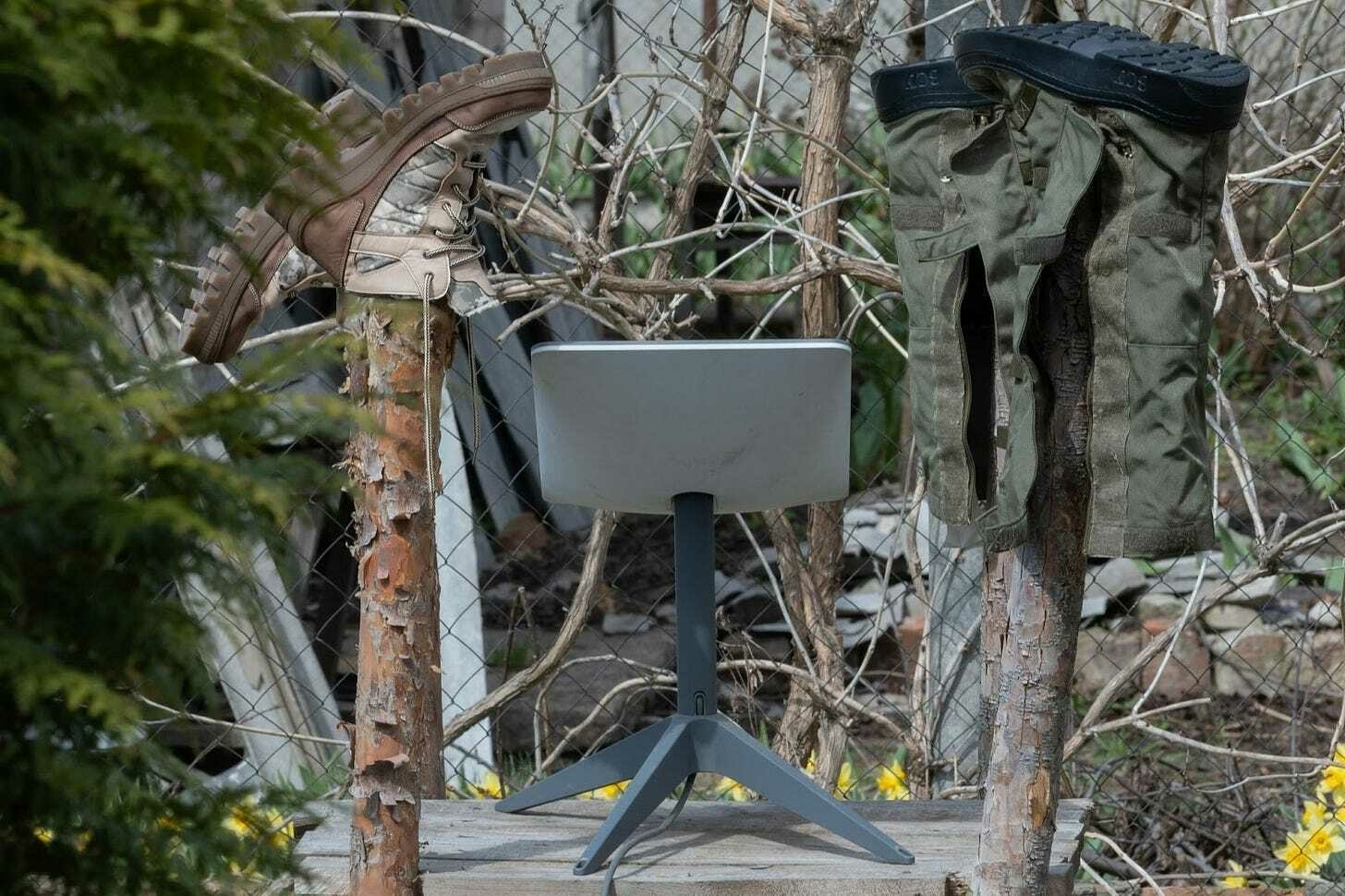
An antenna of the Starlink satellite-based broadband system stands in a yard next to the wooden posts on which shoes are dried on April 7, 2024 in Kupiansk, Ukraine. Photo by Yan Dobronosov/Global Images Ukraine via Getty Images. The main reason why Ukraine began to look for an alternative to the Starlink system in earnest is to reduce its dependence on Musk.
According to the Financial Times, the EU is currently negotiating with four similar operators to potentially replace Starlink in the Armed Forces. These include Luxembourg's SES, Spain's Hisdesat, Britain's Viasat, and France's Eutelsat/OneWeb.
The first three companies have outdated technology. Their satellites are too high above the ground, about 30,000 km, while Musk's satellites are only between 500 and 800 km away. This distance increases signal transmission time.
Eutelsat/OneWeb satellites are located much closer to the Earth at a distance of 1,200 km, similar to Starlink. However, the Starlink satellite network is much larger – with more than 6,000 satellites, compared to just five or six hundred Eutelsat/OneWeb satellites. This also affects the speed and quality of communication.
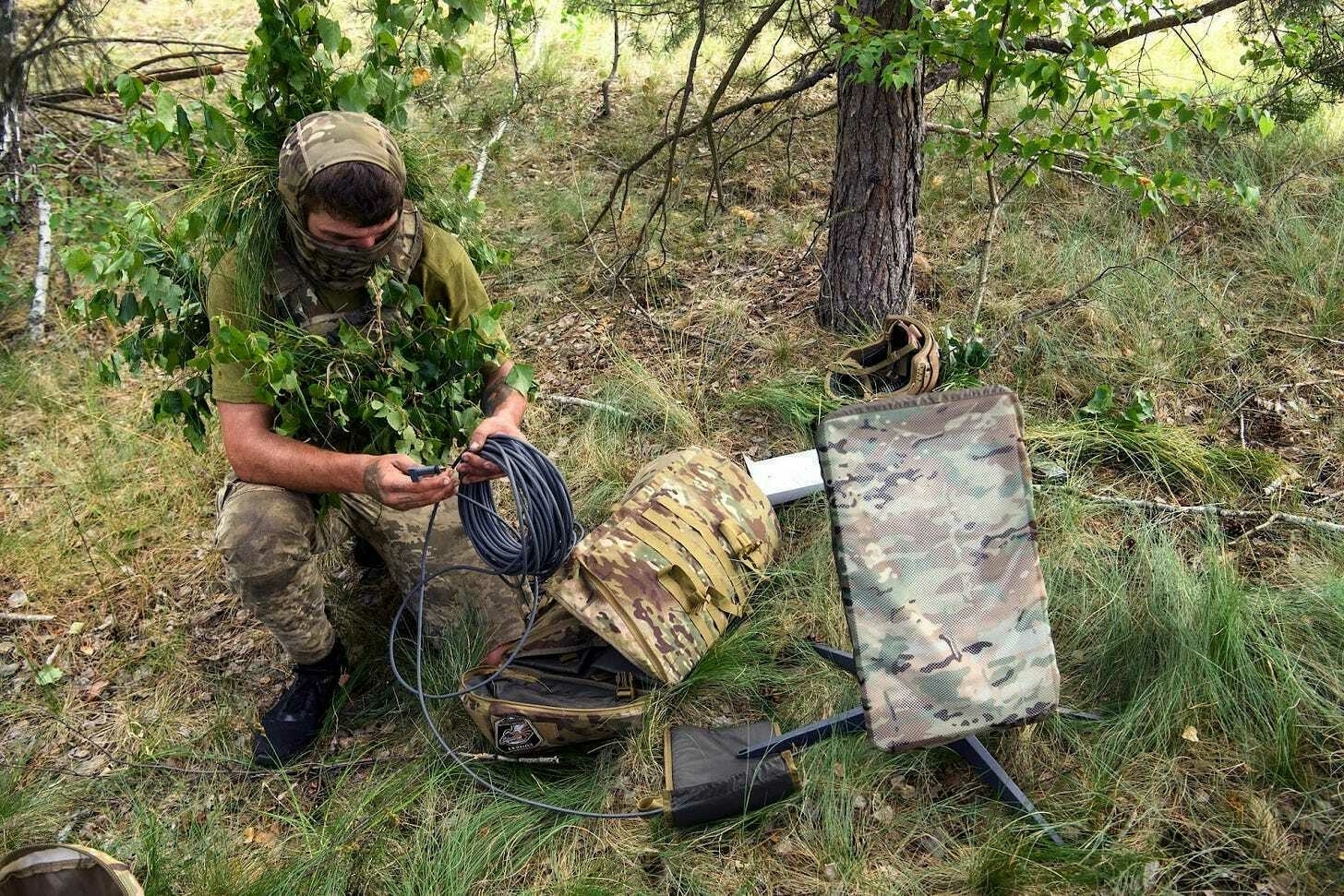
A Ukrainian soldier of the 61st Separate Mechanized Brigade uses the Starlink system during military exercises in the Chernihiv region, Ukraine, June 2023. Photo by Maxym Marusenko/NurPhoto via Getty Images. The other alternatives are more primitive technologies. During the Kursk operation, Ukrainian forces used radio stations or wired communication, as Starlink does not work in Russia.
“We can successfully defend the country without Starlink. We did it at the very beginning of the full-scale invasion, and we can do it now. It is more difficult, more expensive… but it is possible,” added Volodymyr Stepanets of the initiative ‘Narodnyi Starlink,’ which deals with the repair and procurement of Starlink terminals in Ukraine.
At the same time, Volodymyr Stepanets believes that disconnecting Starlink is not only bad for Ukraine, but also for Musk himself. According to him, there are currently more than 150,000 Starlink terminals in Ukraine, and monthly subscription fees alone bring the company about $15 million.
“As a country, we are Musk's largest customer on this continent. Probably, the number of Starlink terminals in Ukraine is higher than in the whole of Europe,” he said.
The Counteroffensive sent a letter of inquiry to the Ministry of Digital Transformation and the Starlink office in Ukraine to determine the official number of Starlink terminals in Ukraine. At the time of publication, we did not receive a response.
Oleg has personally worked on Starlink Gen 2 terminals, which feature a vulnerability when it comes to use in the field. One of the connections used for the cable between the equipment was susceptible to moisture getting into the system, and so easily failed.
So Oleg had to figure out how to use another company's connector, which would be more resistant to moisture. He tried it out for himself, then recorded a video to show others how to do it.
So, like Ukrainians have done for years, he made do with what he had. He adapted, innovated and showed how to replicate his idea. He made more with less.
Under pressure, Ukraine’s creativity shines – and would even if Elon turned off the Starlink terminals.
In this time of great uncertainty — and unstable American support — it means that the situation on the ground is very dangerous. Your contributions help us get the body armor, medical gear, and supplies we need to stay safe.
Show your support by contributing to our tip jar - funds go towards keeping us safe and ensuring our work continues.
Tim Mak x The Bulwark’s Jonathan V. Last
Are we looking at a trifurcation of the world due to Trump’s tariffs? And, Tim and JVL discuss how changing drone technologies are shifting the economics of battlefield combat.
NEWS OF THE DAY:
Good morning to readers; Kyiv remains in Ukrainian hands.
RUSSIA LAUNCHES NEW ASSAULT ON SUMY, KHARKIV REGIONS: Russian troops have already begun an offensive in the Sumy and Kharkiv regions, according to Oleksandr Syrsky, the head of the Ukrainian military.
This is evidenced by Russian offensive operations in those areas, which have nearly doubled over the past week. The offensive's intensity is increasing daily despite international negotiations aimed at a ceasefire. Earlier, Ukrainian President Volodymyr Zelenskyy said Russia was preparing for a spring offensive in the Sumy and Kharkiv regions.
UKRAINIAN STEELMAKER RECEIVES FIRST COAL FROM U.S.-BASED MINE: Ukrainian steelmaker Metinvest has received its first shipment of 80,000 tons of coking coal from its plant in the United States. Coking coal, a key ingredient in steel production, is essential for maintaining Ukraine’s industrial and defense capabilities. The shipment was organized to replace losses caused by the closure of the Pokrovska mine in the Donetsk region, which ceased operations due to the threat of a Russian offensive.
The company plans to organize regular deliveries to maintain the stable operation of the Zaporizhstal and Kamet Steel plants. Each vessel is expected to carry approximately 80,000 tons of raw materials monthly.
CHINESE SOLDIERS FOUGHT IN THE RUSSIAN ARMY FOR MONEY: Chinese soldiers captured by Ukrainians in the Luhansk region on April 8 fought in the Russian army for money, according to Ukrainska Pravda. One of them said that he had been paid 300,000 rubles (approximately US$3,480) through an intermediary in China to join the Russian Armed Forces. He also hoped to obtain Russian citizenship in return.
The Ministry of Foreign Affairs of Ukraine summoned the Charge d'Affaires of China and condemned the participation of Chinese citizens in the war against Ukraine. The Chinese side said it was checking the information received. In the Lugansk region, the Ukrainian military captured two Chinese citizens who had fought on the side of the Russian army.
RUSSIAN SOLDIERS EAT MEDICINE DUE TO HUNGER ON FRONTLINES: Ukrainian military intelligence (HUR) intercepted a conversation revealing a critical situation regarding the Russian military's supplies at the front. A woman mentions that her friends have been sitting in a dugout for two weeks and have run out of food, forcing them to consume even their medicine — Teraflu (anti-cold powder).
This is not the first case; in 2022, the SBU published intercepts revealing that Russian soldiers admitted to eating a Yorkshire terrier out of hunger.
DOG OF WAR
Today's dog of war is Tosha from Mykolaiv. He was there during the entire occupation of Kherson, a neighboring large city, so he heard the shelling of Russian artillery systems almost every day. But now Kherson is free, and Mykolaiv is calmer, so he is happy.
Stay safe out there.
Best,
ArtemUkraine ready to negotiate 'abolition of duties' on all US goods amid Trump's tariffs
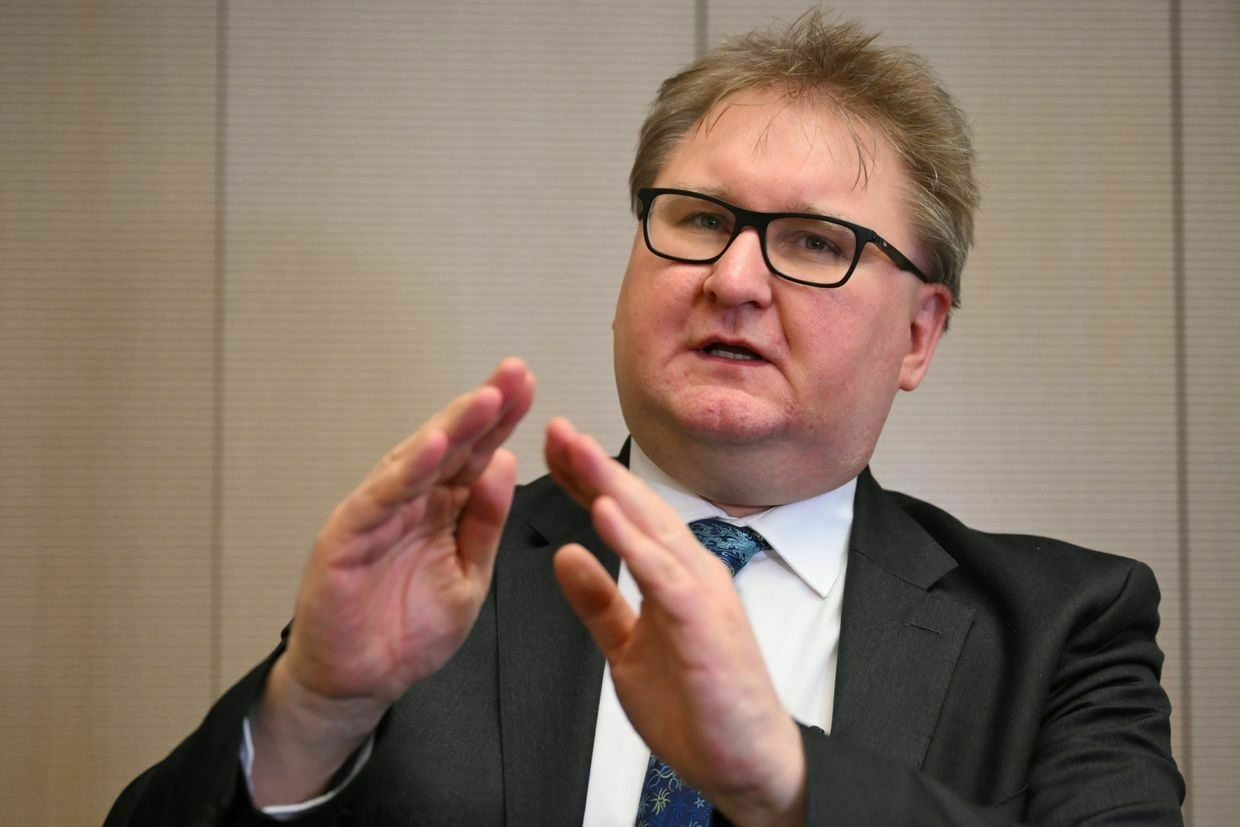
Ukraine is ready to negotiate with the U.S. the lifting of all tariffs on American goods, Deputy Economy Minister and Trade Representative Taras Kachka told Ukrainska Pravda in an interview published on April 8.
Kachka said Ukraine was prepared to zero out duties on U.S. imports, which amount to roughly $3–4 billion annually and are already subject to either low or no tariffs.
“Our priority is the abolition of duties, not escalation,” he said, emphasizing Ukraine’s desire to maintain strong economic and diplomatic ties with Washington.
The move comes in response to U.S. President Donald Trump’s sweeping new tariff policy, announced on April 2 as part of what he called “Liberation Day.”
Trump, who has framed the tariff regime as a bid to revitalize American manufacturing and fight back against foreign exploitation, said the U.S. had been “looted, pillaged, raped, and plundered” for decades.
Ukraine was hit with a 10% blanket tariff on its exports — lower than the 20% imposed on the European Union and the accumulative 104% on China, but still a setback for a country at war.
Kyiv’s metallurgy sector, a major source of Ukrainian exports to the U.S., was already impacted by a 25% tariff imposed in March. Despite this, Kachka signaled that Ukraine would not retaliate and instead hopes to engage in a “delicate dialogue” to resolve the issue.
How Trump’s tariffs will impact UkraineU.S. President Donald Trump on April 2 unleashed what he has dubbed “Liberation Day,” imposing tariffs on nearly every country in the world — including war-torn Ukraine. Kyiv got off lighter than most with only a 10% tariff on all Ukrainian goods, compared to 20% on the EU, and 54%The Kyiv IndependentDominic Culverwell
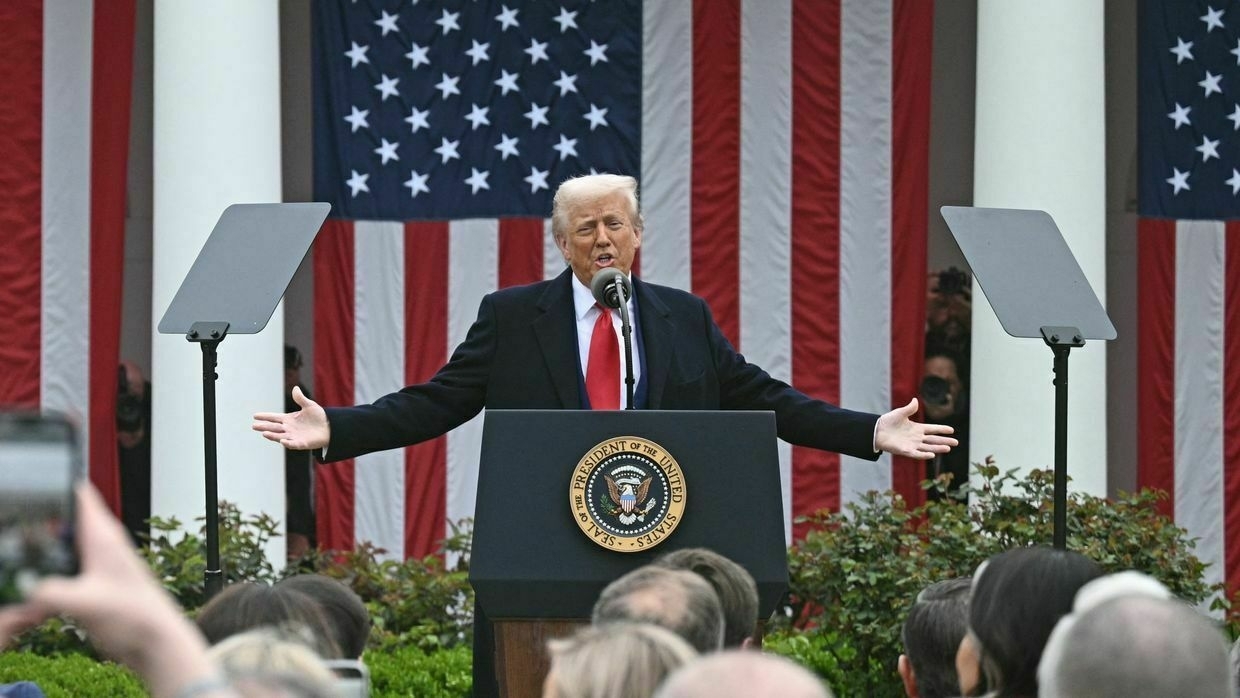
In 2023, Ukrainian exports to the U.S. totaled just $874 million, while imports from the U.S. reached $3.4 billion. The overall trade volume has declined in recent years, but the tariffs could deepen the imbalance, especially if they trigger broader protectionist measures globally.
Yuliia Svyrydenko, Ukraine’s Economy Minister, called the new U.S. tariffs on April 3 “difficult, but not critical,” saying Kyiv remained focused on long-term economic resilience and international cooperation.
Oleksandra Myronenko, an analyst at the Center for Economic Strategy in Kyiv, warned that a global trade war triggered by the new tariffs could still have knock-on effects for Ukraine.
“Even if we’re not the main target, we could feel the fallout,” she told the Kyiv Independent.
Russia was not among the countries and territories subject to the wide-ranging tariffs as the existing sanctions “preclude any meaningful trade,” White House spokesperson Karoline Leavitt claimed.
Kyiv’s strategy now centers on preserving access to global markets and maintaining stable ties with Washington amid growing uncertainty over future U.S. economic and security commitments.
Trump spares Russia from tariffs, but oil price plunge could wreck war economy regardlessU.S. President Donald Trump has inadvertently hit Russia’s economy after his “Liberation Day” tariffs caused oil prices to drop drastically on April 7, with potentially massive ramifications for the Kremlin’s ability to fund its ongoing war in Ukraine. Russia has so far failed to agree to a fullThe Kyiv IndependentDominic Culverwell
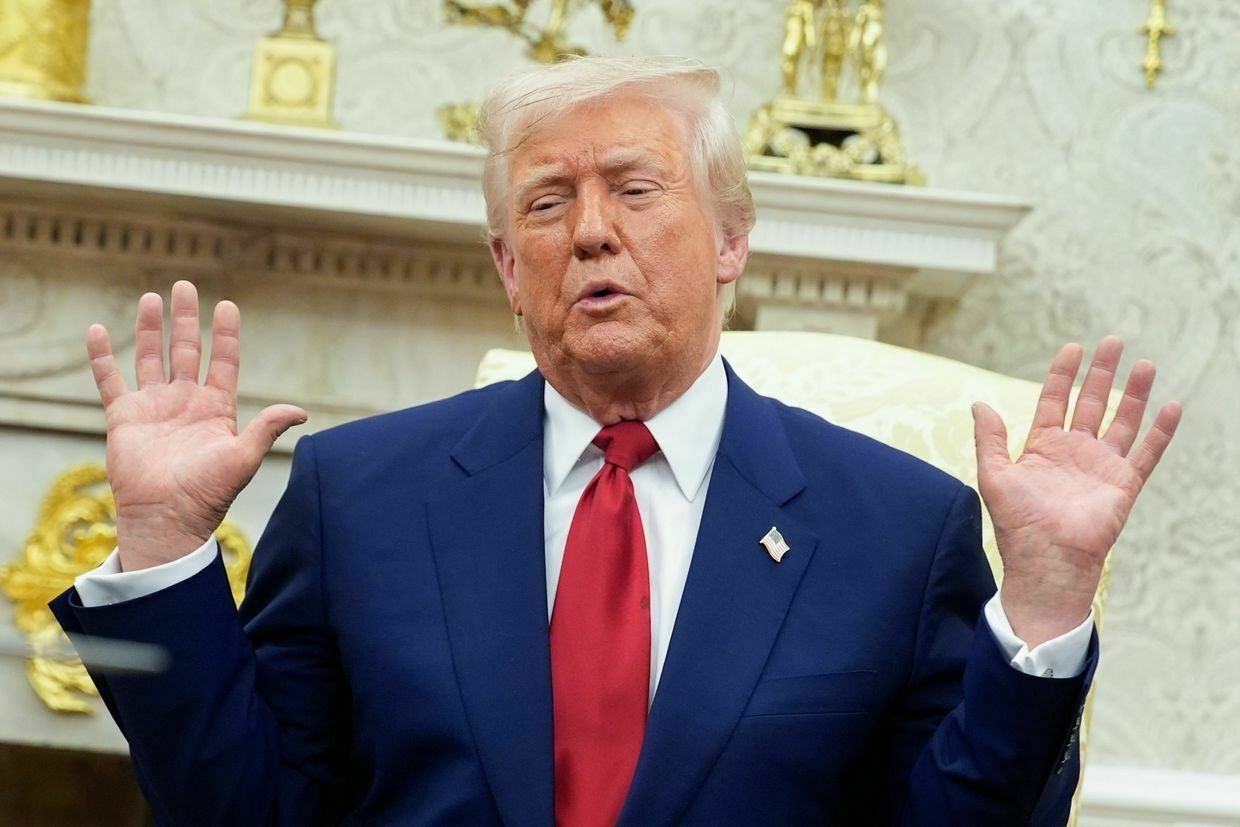
Russian general suspected of fraud to reportedly lead Storm-Z penal unit in Ukraine
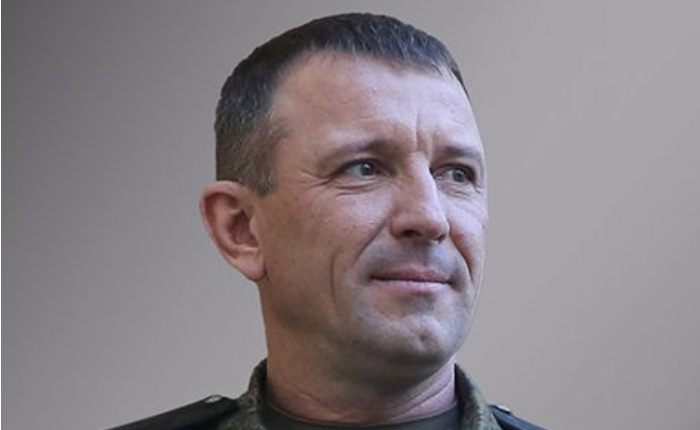
Russian Major General Ivan Popov, the former commander of the 58th Combined Arms Army suspected of large-scale fraud, signed a contract with the Russian Defense Ministry to go fight in Ukraine, pro-state outlet Kommersant reported on April 9.
Popov is expected to lead one of the Storm-Z detachments, a front-line assault group largely composed of convicts and known for high casualty rates, Kommerstant’s source in security services claimed.
The officer’s lawyer and the Defense Ministry appealed to the military court overseeing the case to suspend the proceedings and release Popov from detention to go fight in Ukraine, the Russian media reported.
Popov was arrested in May 2024 on suspicions he took part in the theft of 1,700 metric tons of metal intended for building fortifications in the Russian-occupied part of Ukraine’s Zaporizhzhia Oblast.
The general was dismissed from his command in 2023 after he reportedly bypassed the command of Chief of the General Staff of the Russian Armed Forces Valery Gerasimov and attempted to directly appeal to the Kremlin over poor battlefield conditions.
In March, Popov sent an open letter to Russian President Vladimir Putin, saying that he had always been a “loyal soldier” and asking for permission to return to military service.
Does Trump have red lines with Russia? The question has experts stumpedHe’s been “pissed off,” “not happy,” and “very angry,” but so far, U.S. President Donald Trump is yet to take any concrete action to force Russian President Vladimir Putin to agree to a full ceasefire. Trump has multiple forms of leverage he could use against the Kremlin — increasing militaryThe Kyiv IndependentChris York
